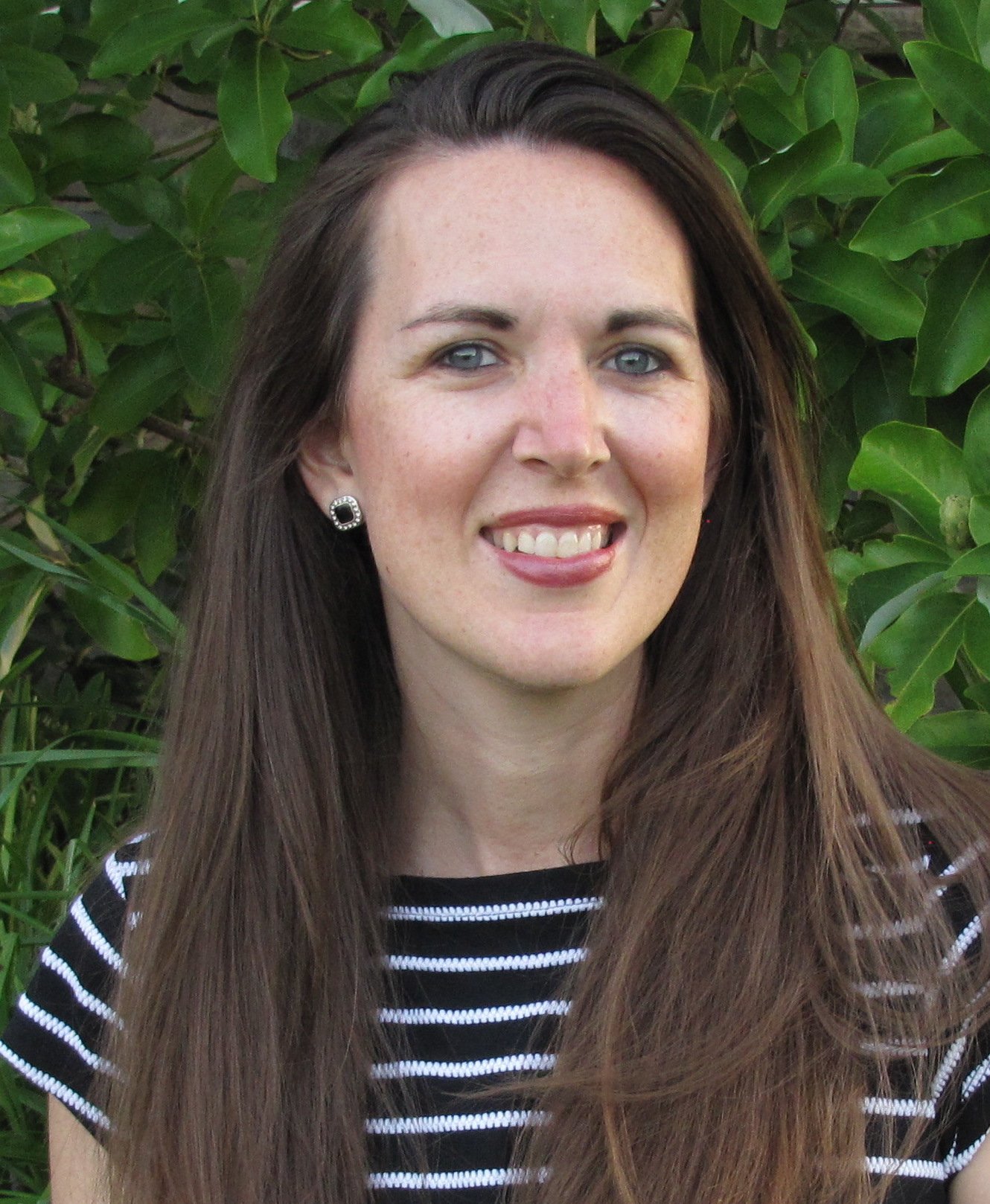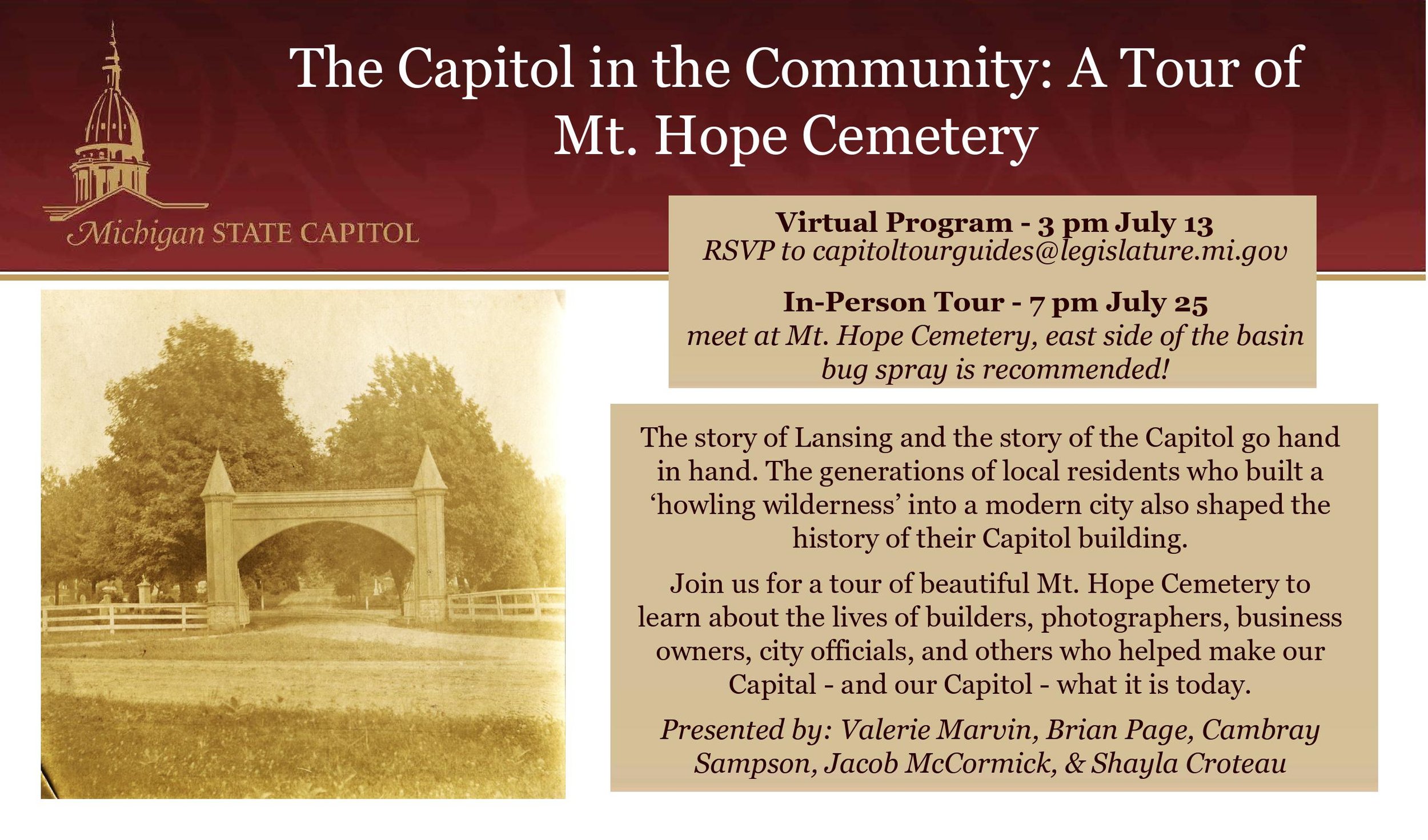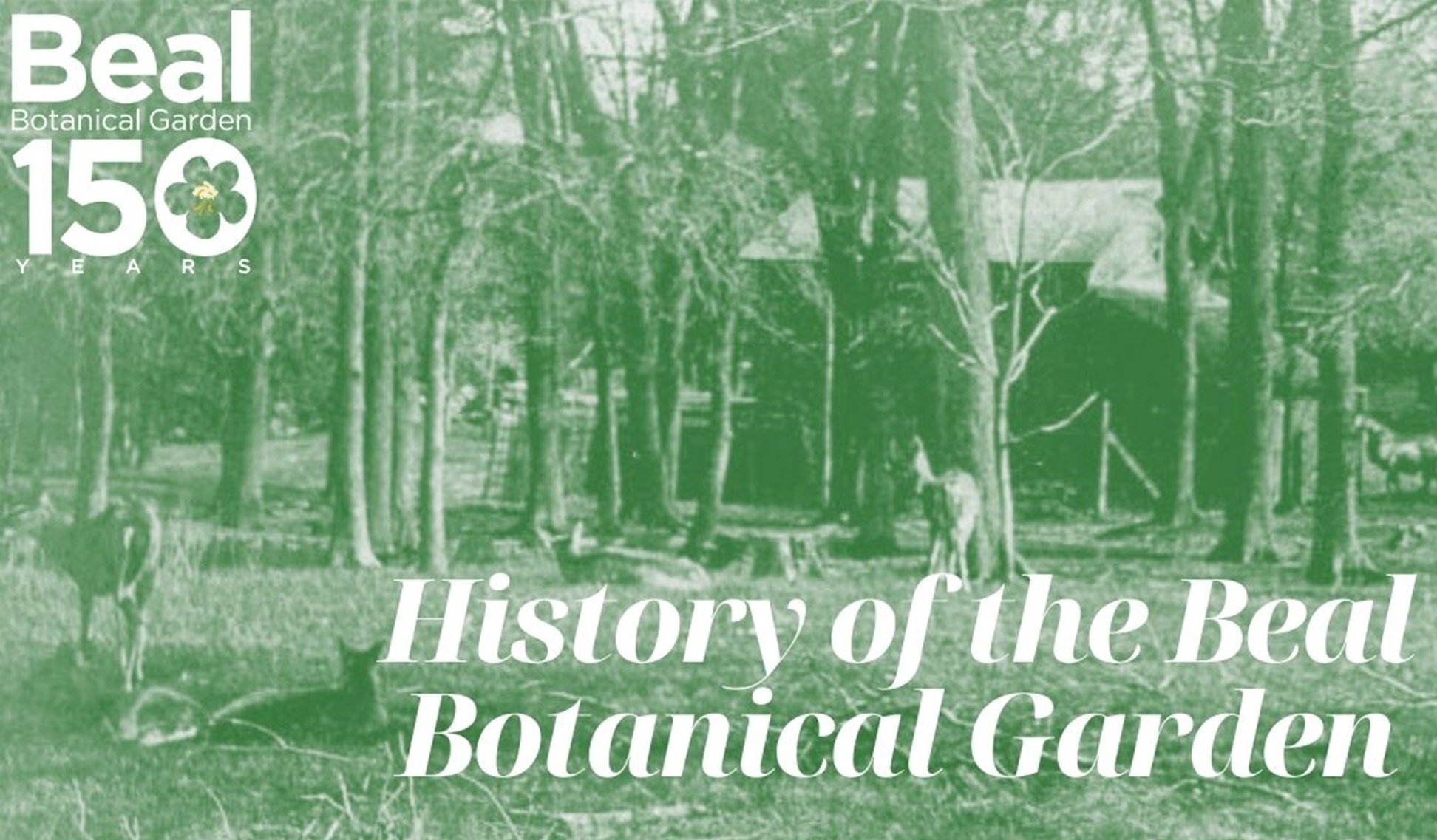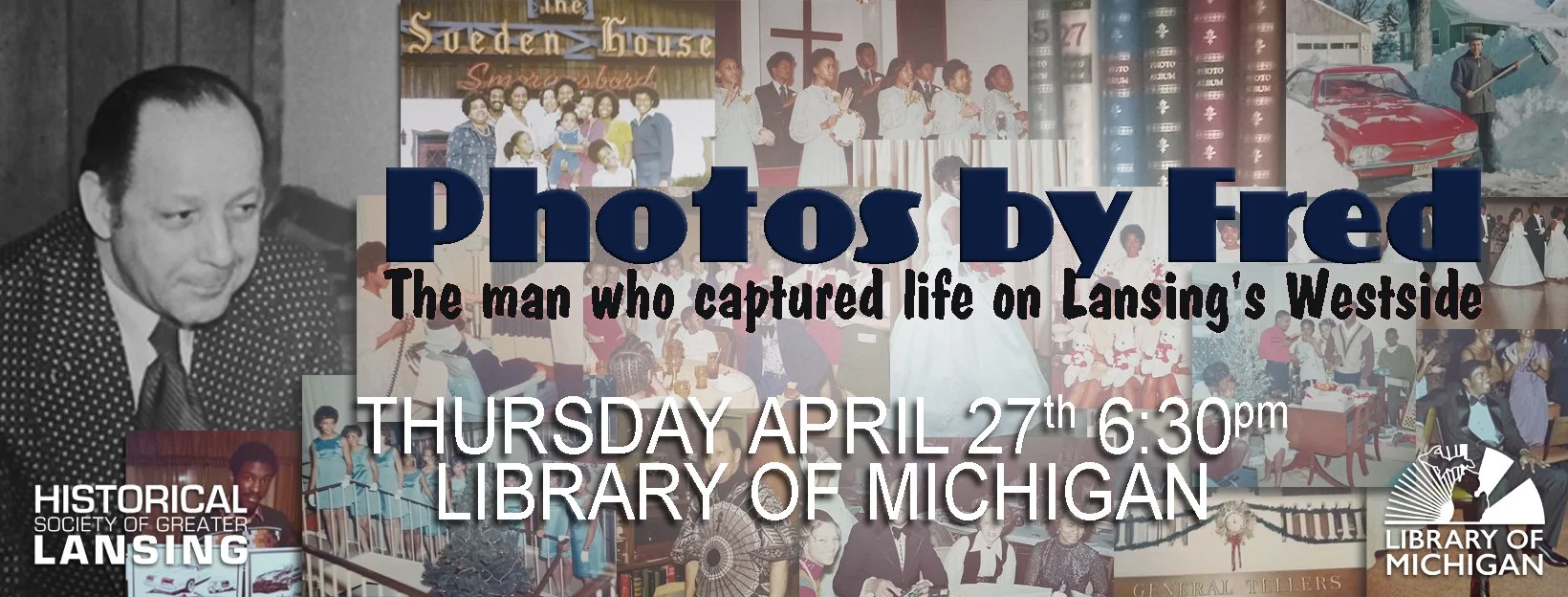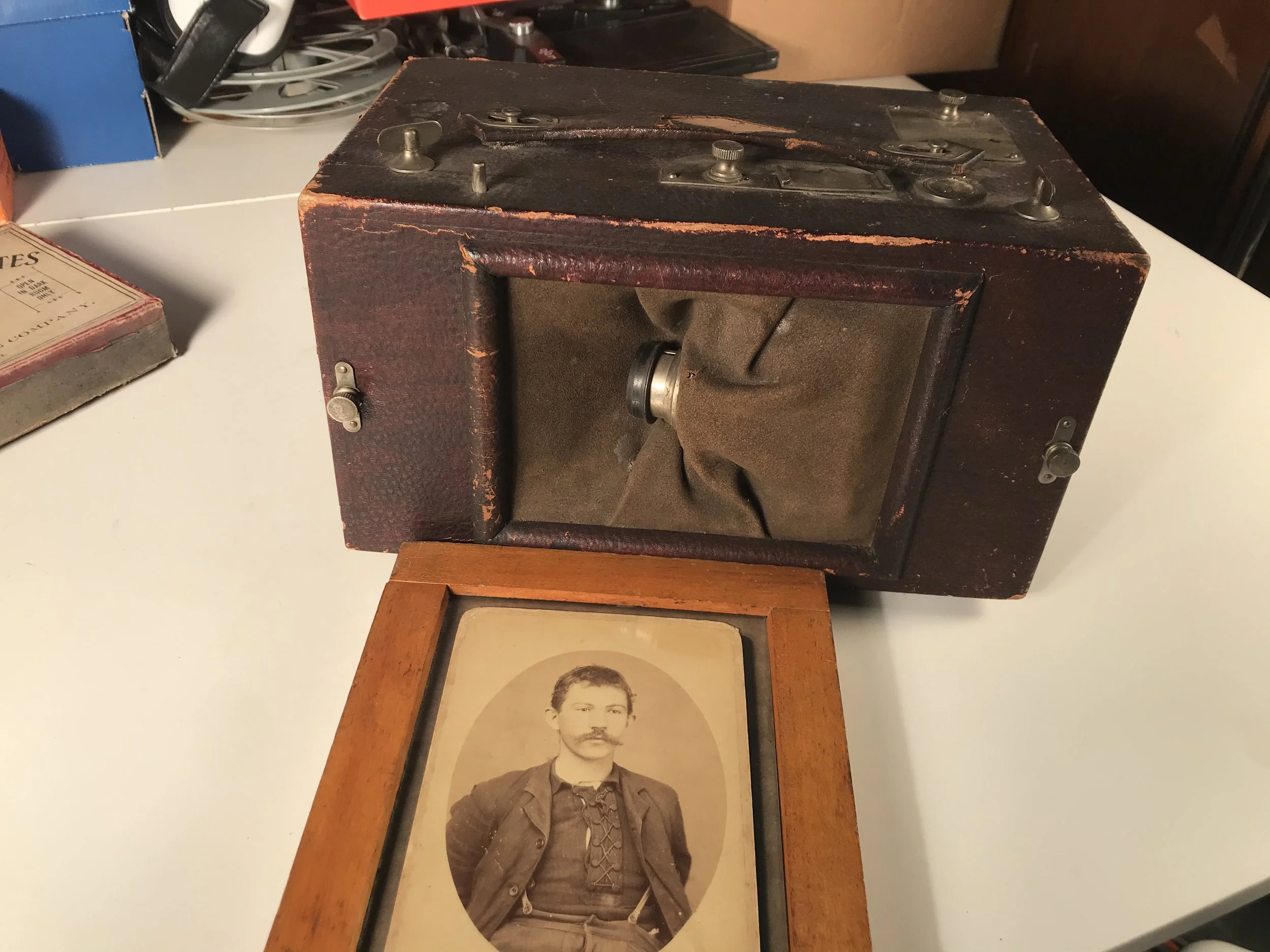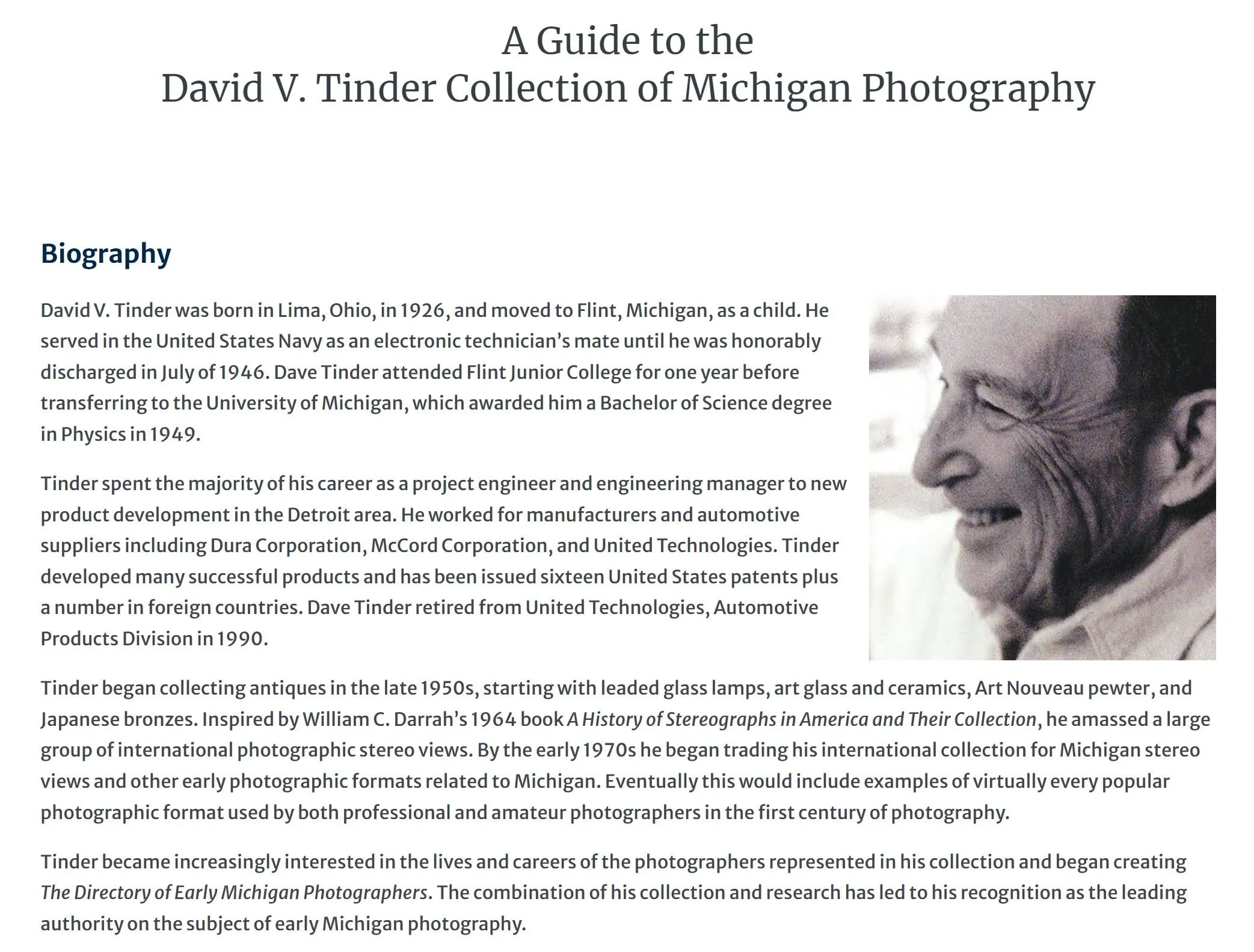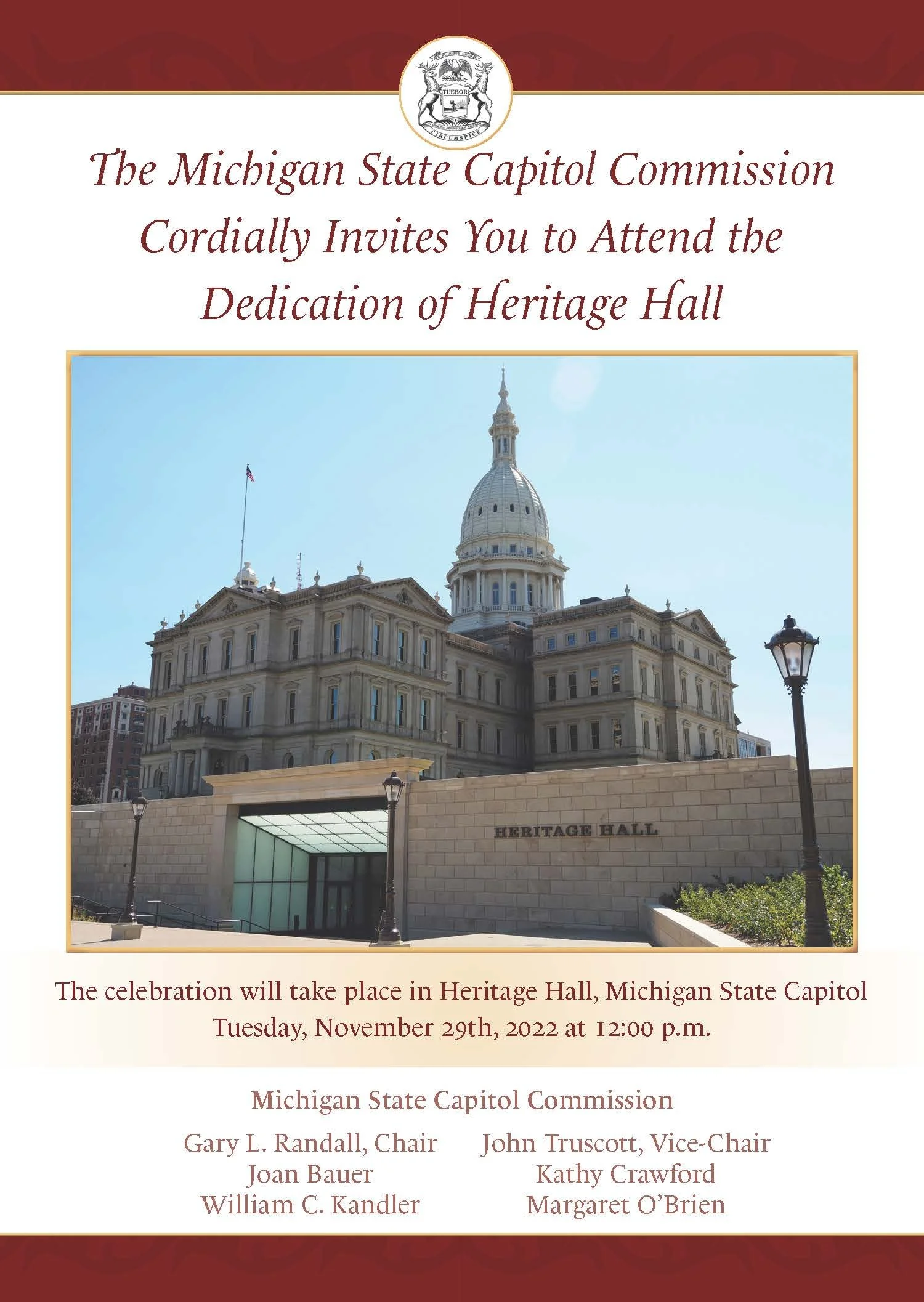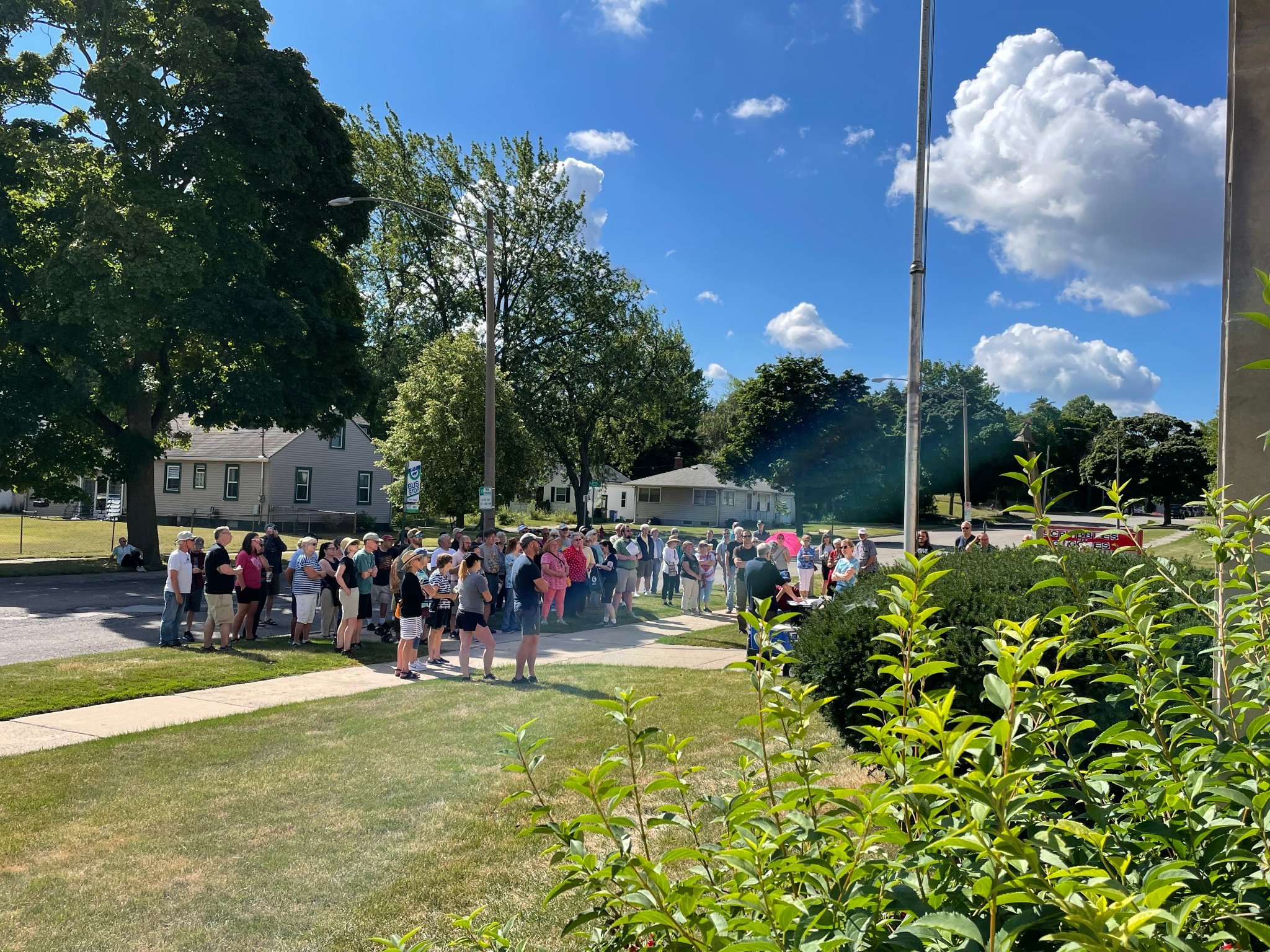
Upcoming Events
56 Consecutive Summer Walking Tours Without a Rainout Since 2011!
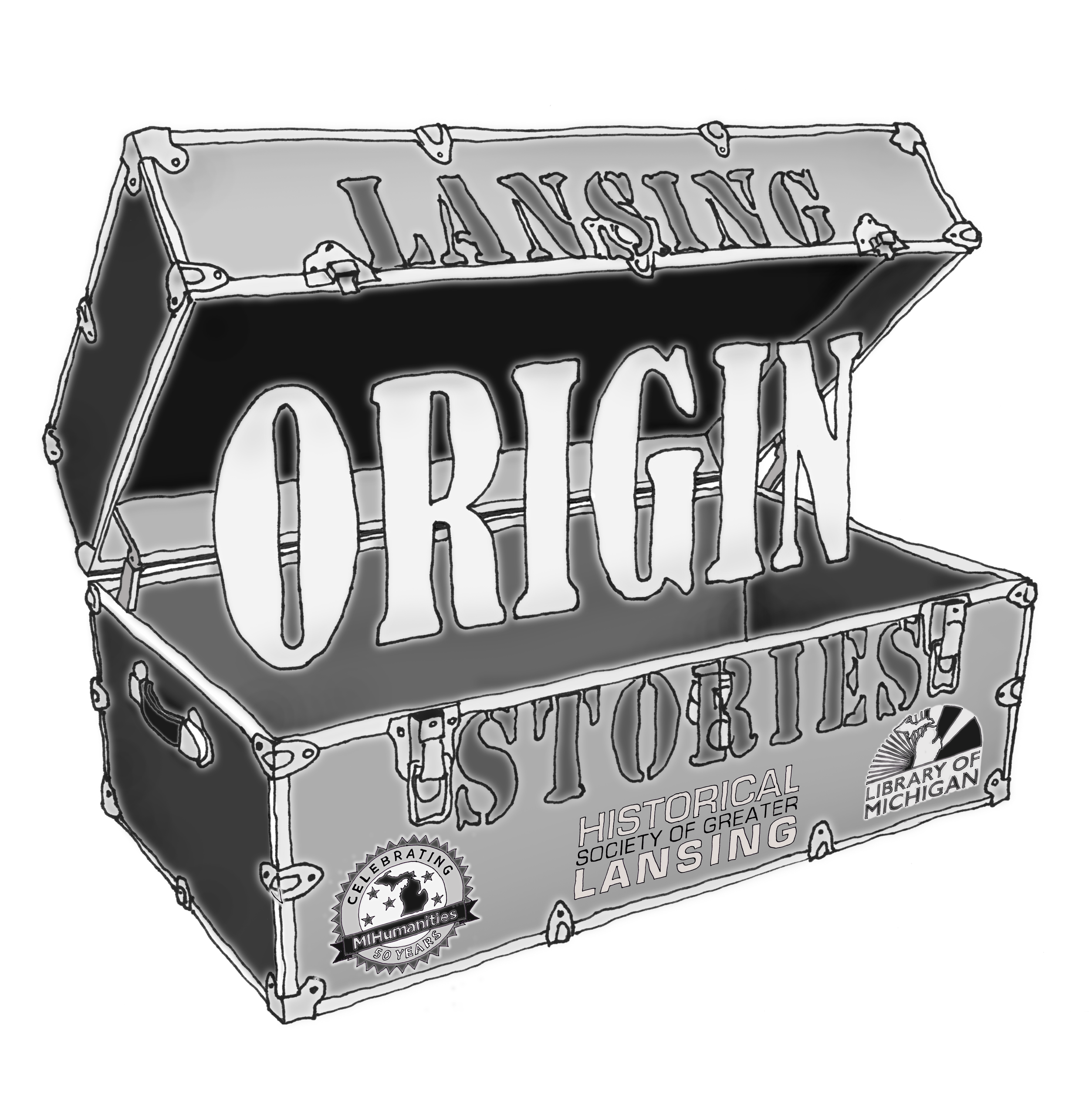
Origin Stories Exhibit Opening and Kick-Off
Join us on Thursday, April 25, 6:30 p.m., at the Library of Michigan, Lake Erie Room for the opening and kickoff of our “Origin Stories” exhibit.
“Origin Stories" is a collection of 50 recorded oral histories detailing the arrival of Lansing residents from across the globe. Selections as broad as a Vietnamese boat person, the son of a Ukrainian shepherd, a family who made their way via the Erie Canal; a young couple from Alabama who were part of the Great Migration, a family member who survived the Indian Boarding School and other individuals who were part of the refugee resettlement. Many came fleeing war, famine, religious oppression, and many others saw opportunities not available to them in their original countries. Immigrants made their way from Ireland, France, Canada, Scotland, and scores of other countries. The Exhibit will profile these individual origin stories through video storytelling and traditional exhibits of artifacts.
MSU West Campus Walking Tour
The HSGL again welcomes archivists from the Michigan State University Archives and Historical Collections for a historical walking tour on MSU’s campus, this time featuring West Campus. More information to come.

Kathlene Frances Fowler Program
On Thursday, April 25, 1:00 p.m., at the Library of Michigan, Lake Erie Room, Matt Lutzke, president of the Williamston Depot Museum, will discuss his new book and relate the story of Kathlene Frances Fowler of Williamston, who, during the Harding Administration, was one of the most important women in public service in Washington D.C. She would later become social secretary to First Lady Harding and work in numerous positions in Washington D.C.

Bath School Disaster Revisited
On Thursday, May 16, 6:30 p.m., the HSGL will present The Bath School Disaster: America’s First School Terrorism Attack, Revisited. The program will be held at the Library of Michigan, Lake Erie Room, with lecturer George B. Robson, son of the young man who was the 1927 Senior Class President and Valedictorian and a young woman, a sophomore at Bath School - both survivors of the tragedy.
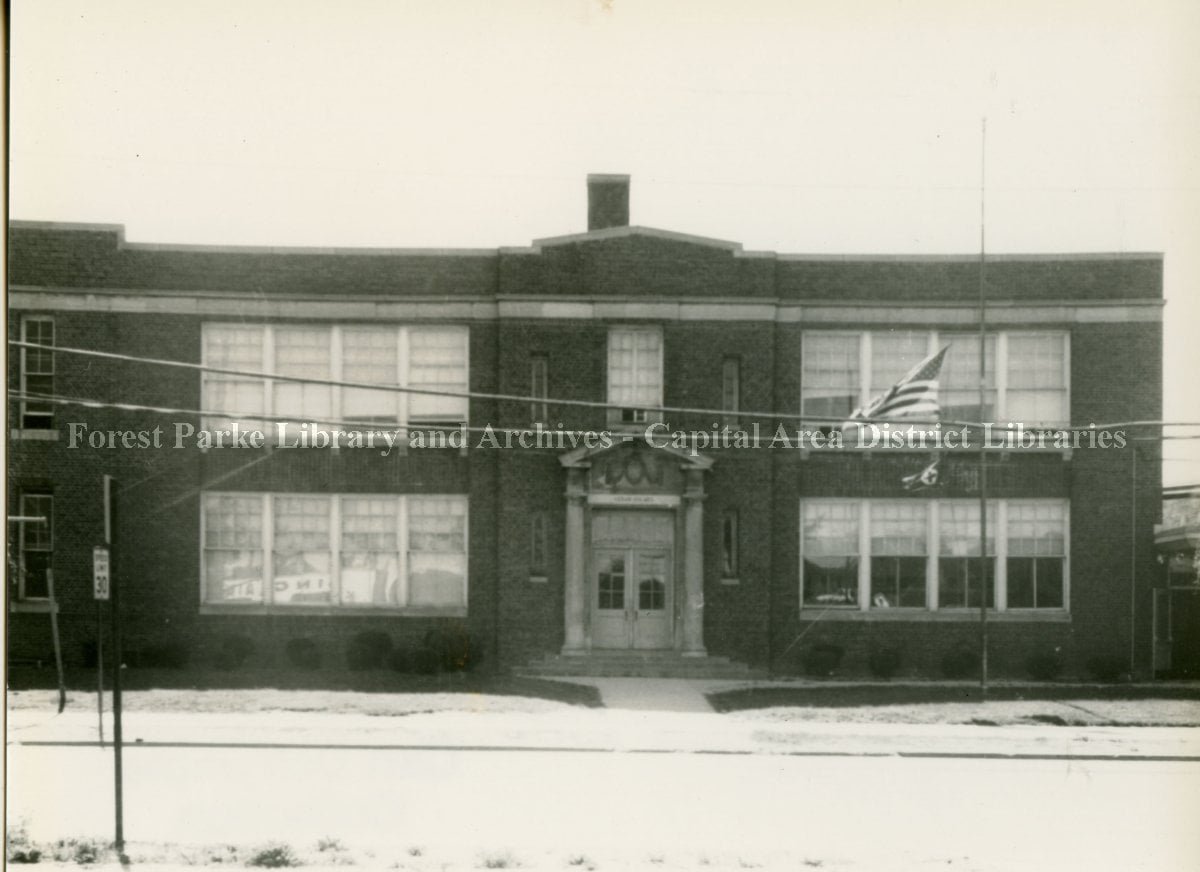
Ingham County Rural One Room Schools Book Talk
The Ingham County Historical Commission recently published a book on Ingham County Rural One Room Schools, which features all sixteen townships in the county, including Lansing. ICHC secretary and editor of the book, Audrey Z. Martini, will present on the book, project, and discuss county one room schools with a special angle on Lansing’s rural and independent districts. The program will be held on Thursday, May 16, 6:30 p.m., at the Library of Michigan, Lake Erie Room.

Family History Research and Tour at the Library of Michigan
On Saturday, May 4, 10:00 a.m., at the Library of Michigan, 2nd Floor, Adam Oster, librarian at the Library of Michigan, will present the Family History Research and Tour at the Library of Michigan.
Learn the basics of researching your family's history through the collections of the Library of Michigan. Join us as we review the Library’s wide range of material that can help you uncover your Michigan roots. Discover online resources available with a Library of Michigan Library Card and enhance your search strategies for navigating both print and digital records. A tour of the collections will follow the presentation.
North Capitol Avenue Walking Tour
A walking tour of North Capitol Avenue homes beginning at the historic Herrmann House on the campus of Lansing Community College.

Photo Identification and Preservation
On Thursday, June 13, 6:30 p.m., at the Library of Michigan, Lake Erie Room, a program on family photo identification and preservation will be given. Presented by Michigan State Capitol Photo Archivist and HSGL board member Jacob McCormick.

"Senator" Joe Ford Program
On Thursday, June 20, 6:30 p.m., at the Library of Michigan, Lake Erie Room, librarian and author Christine Byron and Sophia Brewer, Serials and Collection Development Librarian, Grand Rapids Community College, will present a program on “Senator” Joe Ford, who was the Keeper of the Senate Cloak Room at the State Capitol for decades. Ford emerged from Slavery to become an important administrator from 1881-1937 in Lansing.
Michigan State Capitol Tour of Mount Hope Cemetery
The Michigan State Capitol’s monthly programming series, Rise and Progress, will hold its third tour of Mount Hope Cemetery featuring people with connections to the Capitol’s history. More information forthcoming.
Lansing Woman's Club Tour of Mount Hope Cemetery
To mark the sesquicentennial of the Lansing Woman’s Club, the club will host a walking tour of Lansing’s history Mount Hope Cemetery with a focus on LWC members buried there. Friends of the Historical Society of Greater Lansing are welcome to attend.
Free Spirit 50th Anniversary Walking Tour
Join the HSGL for the historical walking tour, “Lost in the 60s” featuring Downtown Lansing and recognizing the 50th Anniversary of Free Spirit. We will sponsor a walk of Downtown Lansing, primarily through the 100-400 blocks of South Washington Avenue. The tour will begin behind the Daily Bagel for the dedication of a new alley mural.
Cherry Hill Walking Tour
Walking tour of the Cherry Hill Neighborhood. More information to come.
Old Town Walking Tour, Part II
Old Town Walking Tour, Part II. More information to come.
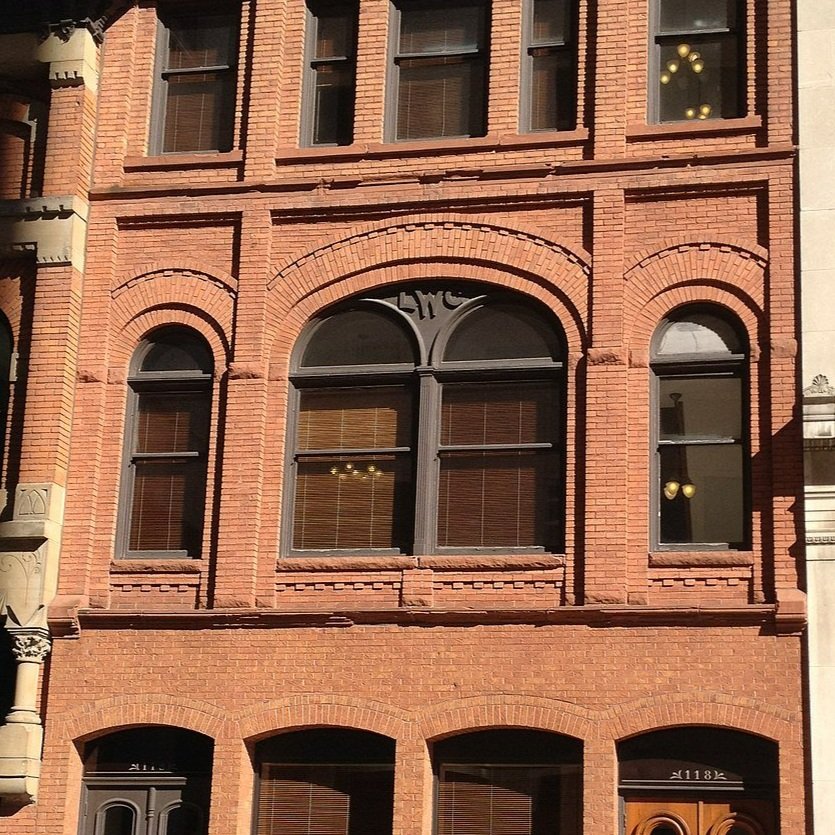
Sesquicentennial of Lansing Woman's Club Walking Tour
On Thursday, August 27, 7:00 p.m., in honor of the Sesquicentennial of the Lansing Woman’s Club, a walking tour will be held of important sites in downtown Lansing with connections to pioneering women in the city. It will cover the gamut from authors to elected officials. The tour will be led by Valerie Marvin, State Capitol Historian, and will leave from the original Lansing Women’s Club Building at 118 W. Ottawa.

Pave the Way: They Even Took the Dirt Documentary Screening
Locally produced documentary coming to LCC
LCC Historians at the Movies and the Historical Society of Greater Lansing present
Pave the Way: They Even Took the Dirt
LANSING, Mich. [Feb. 13, 2024]— The Historical Society of Greater Lansing (HSGL) produced a documentary in 2023 about the impact of I496 construction on Black neighborhoods. On Feb. 27 at 2:10 p.m., LCC Historians at the Movies in collaboration with HSGL is presenting the film in Dart Auditorium for students, LCC faculty and staff, and the community is invited.
Through interviews and footage, Pave the Way: They Even Took the Dirt explores the devastation wrought on a thriving Black neighborhood and business community, as homes and shops were torn down, turning once active streets into dead-ends to make way for the highway that would bisect the city from east to west.
The hour-long documentary will be followed by discussion and Q&A led by LCC History Prof. David Siwik with film coordinator Greta Haney-Trice and film editor Craig Jones.
LCC Historians at the Movies is a monthly gathering to watch films and discuss virtually with fellow viewers through WebEx chat or on x.com using #LCCHATM, led by LCC History faculty with interdisciplinary co-hosts. The Feb. 27 film showing is a special in-person Historians at the Movies event, and is part of LCC’s Black History Month offerings.
WHO: Lansing Community College
WHAT: Pave the Way: They Even Took the Dirt film and discussion
WHEN: Tuesday, Feb. 27, 2:10 p.m.
WHERE: Dart Auditorium – 500 N. Capitol Ave., Downtown Campus
WEBSITE: www.lcc.edu/bhm or LCC Historians at the Movies
FREE parking in Gannon Ramp
FREE Admission
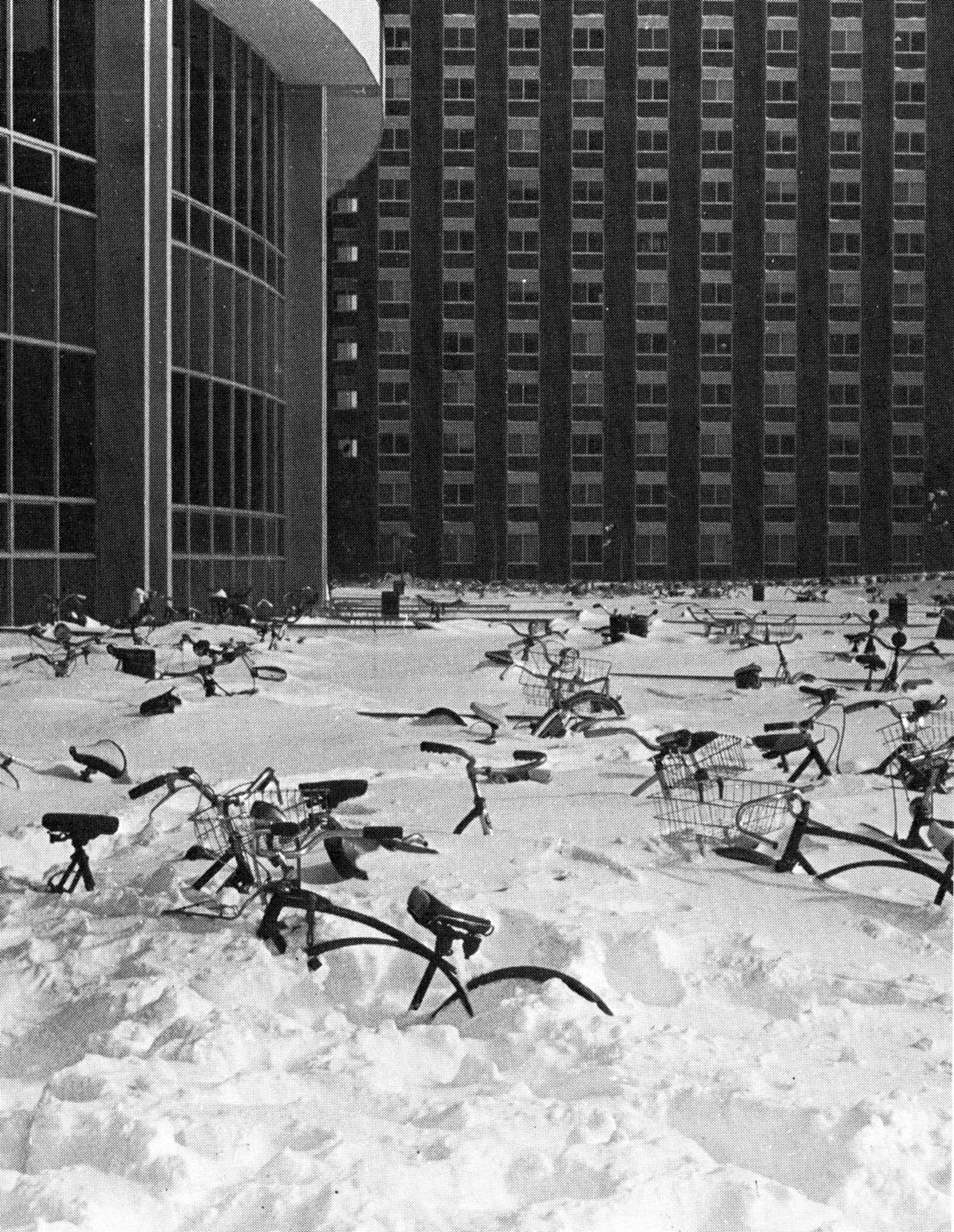
Snow, Floods, and Fires!
Let it snow! Let it snow! The Historical Society of Greater Lansing will host the program “Snow, Floods and Fires,” which is a look back at the major natural and manmade disasters that shaped Lansing history.
The program will be held 6:30 p.m., Thursday, January 25 at the Library of Michigan 702 W. Kalamazoo, Lansing MI. The event is free and open to the public.
Guests are encouraged to bring their own memories of these disasters and are encouraged to send any photographs of these events to info@lansinghistory.org.
Major snow storms to be discussed will include the January 25, 1967, blizzard and the 1978 snowstorm which dropped 19 inches of snow almost exactly 11 years after the 67 blizzard. Both paralyzed Lansing. A storm in 1921 dropped more than 18 inches in Lansing.
Fires will include several downtown Lansing hotels including the Kerns Hotel fire, Plymouth Congregational Church, the State Office Building fire and the February 1971 fire in Old Town (occurring only a couple days after the Plymouth Church Fire), which consumed two blocks.
Floods will include the 1975, 1904, and 1947 floods of Lansing.
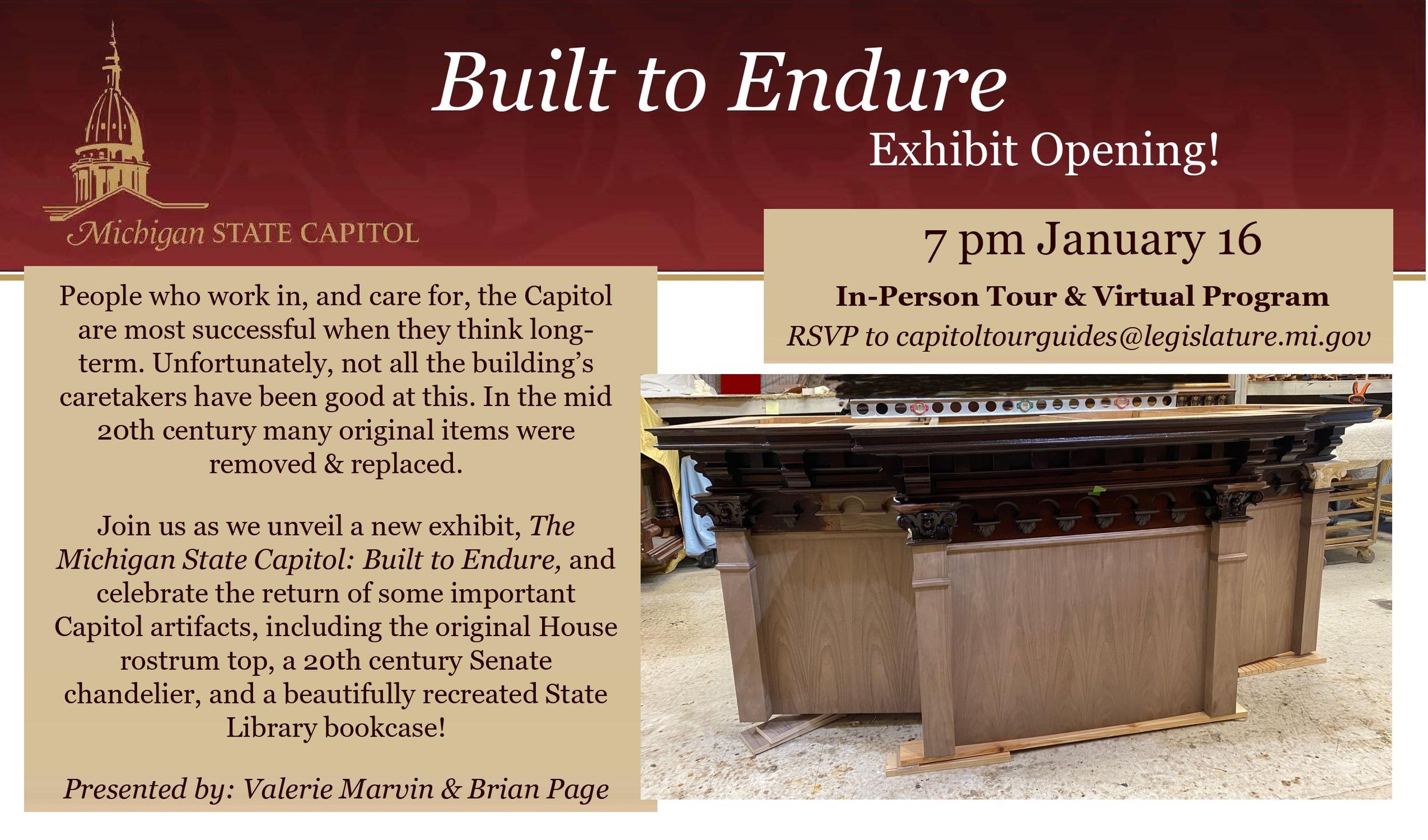
Built to Endure
The Historical Society of Greater Lansing is again pleased to extend the invitation from our friends at the Michigan State Capitol to attend the next installment of their Rise and Progress monthly programming series. This month’s program is titled “Built to Endure” and welcomes a new exhibit to the Capitol building.
People who work in, and care for, the Capitol are most successful when they think long-term. Unfortunately, not all the building’s caretakers have been good at this. In the mid 20th century many original items were removed and replaced. Join Valerie Marvin and Brian Page, with the Michigan State Capitol, as they unveil a new exhibit, The Michigan State Capitol: Built to Endure, and celebrate the return of some important Capitol artifacts, including the original House rostrum top, a 20th century Senate chandelier, and a beautifully recreated Senate Library bookcase!
Offered in person and virtual on January 16, 2024. Please RSVP to capitoltourguides@legislature.mi.gov.
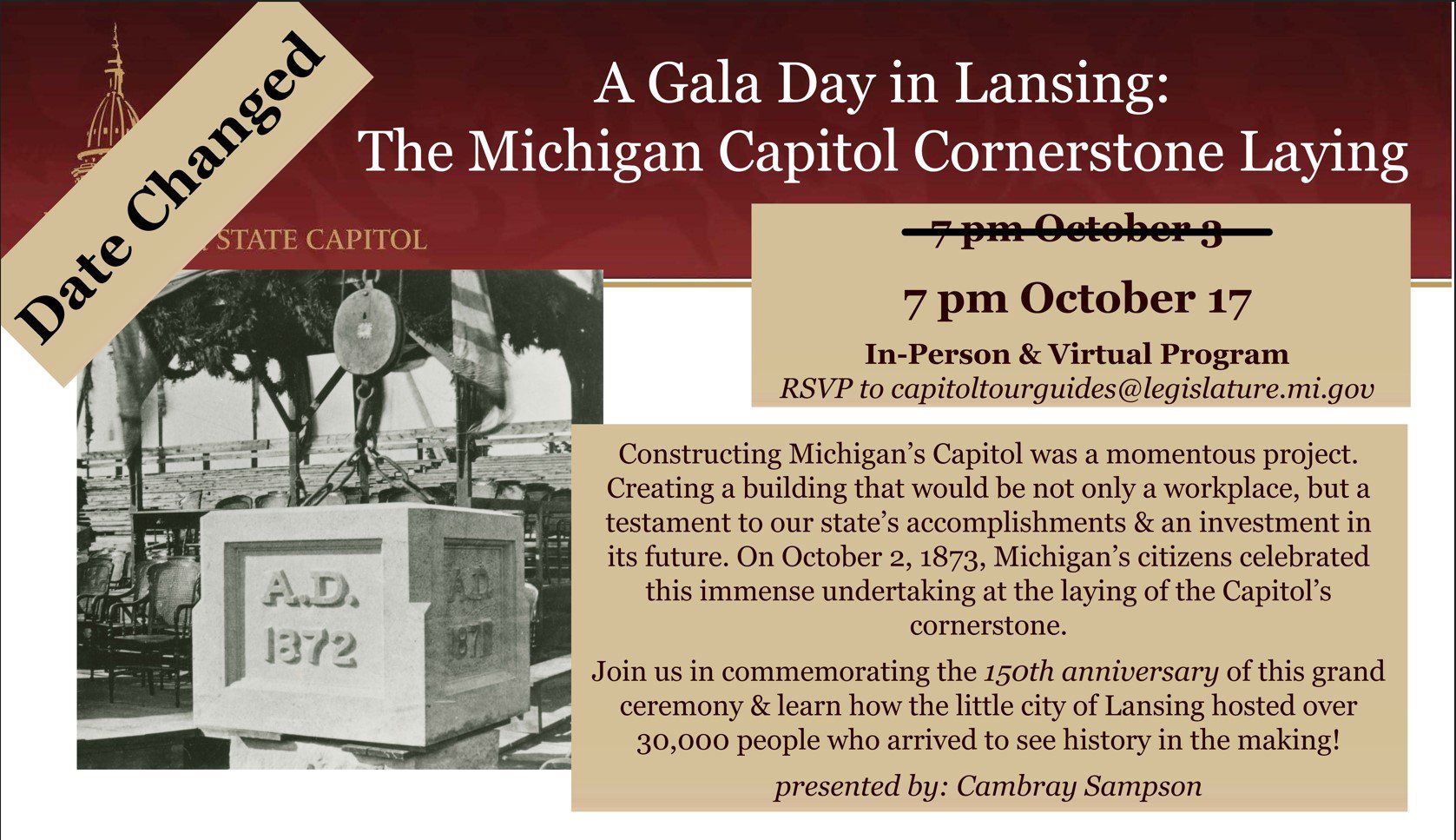
A Gala Day in Lansing: The Michigan Capitol Cornerstone Laying
The Historical Society of Greater Lansing is again pleased to extend the invitation from our friends at the Michigan State Capitol to attend the next installment of their Rise and Progress monthly programming series. This month’s program is central to the fabric of Lansing, the laying of the Capitol cornerstone 150 years ago, marking the biggest and busiest day the community had ever seen.
“Constructing Michigan’s Capitol was a momentous project. Creating a building that would be not only a workplace, but a testament to our state’s accomplishments & an investment in its future. On October 2, 1873, Michigan’s citizens celebrated this immense undertaking at laying of the Capitol’s cornerstone. Join us in commemorating the 150th anniversary of this grand ceremony & learn how the little city of Lansing hosted over 30,000 people who arrived to see history in the making! Presented by Cambray Sampson.”
Offered in person and virtual on October 17, 2023. Please RSVP to capitoltourguides@legislature.mi.gov. This event was rescheduled from October 3, 2023.

"The Girls and Their Monsters" Book Talk
The Historical Society of Greater Lansing is pleased to host Audrey Clare Farley, author of the controversial new book “The Girls and Their Monsters: The Genain Quadruplets and the Making of Madness in America” which explores the lives of four women behind the National Institute of Mental Health’s famous case study of schizophrenia.
In reality, the Genain Quadruplets were the Morlock Quadruplets who were born, raised and idolized in Lansing, Michigan in the 1930s. The Morlock qudruplets were followed closely by the media from the time they were born until young adulthood with the media and citizenry celebrating their every milestone from their birth, to the first day of school to even the first time they voted.
The images were reproduced on everything from calendars to Christmas cards and the four Morlocks were idolized , celebrated and used in business promotions; however the real story of their lives was much darker complicated by abusive parents and schizophrenia.
Farley tells the long forgotten tragic truth of the Morlock family at this special presentation in conversation about her new book which has been reviewed in every major news publication in the country and was named a New York Times Editor’s Pick.
President of the Historical Society Bill Castanier will interview Farley at 7 p.m., Thursday October 16, at the Library of Michigan, Kalamazoo St., Lansing. The event is free.
Audrey Clare Farley is a scholar of twentieth-century American culture with interests in science and religion. She earned a PhD in English literature at University of Maryland, College Park, and now teaches U.S. history part-time at Mount St. Mary’s University. Her first book, The Unfit Heiress: The Tragic Life and Scandalous Sterilization of Ann Cooper Hewitt, tells the story of a 1930s millionairess whose mother secretly sterilized her to deprive her of the family fortune, sparking a sensational case and forcing a debate of eugenics. Her second book, Girls and Their Monsters: The Genain Quadruplets and the Making of Madness in America, explores the lives of the four women behind NIMH’s famous case study of schizophrenia. It was named a New York Times Editors’ Pick. Her essays have appeared in the Atlantic, New York Times, Washington Post, and many other outlets. She lives in Hanover, Pennsylvania.
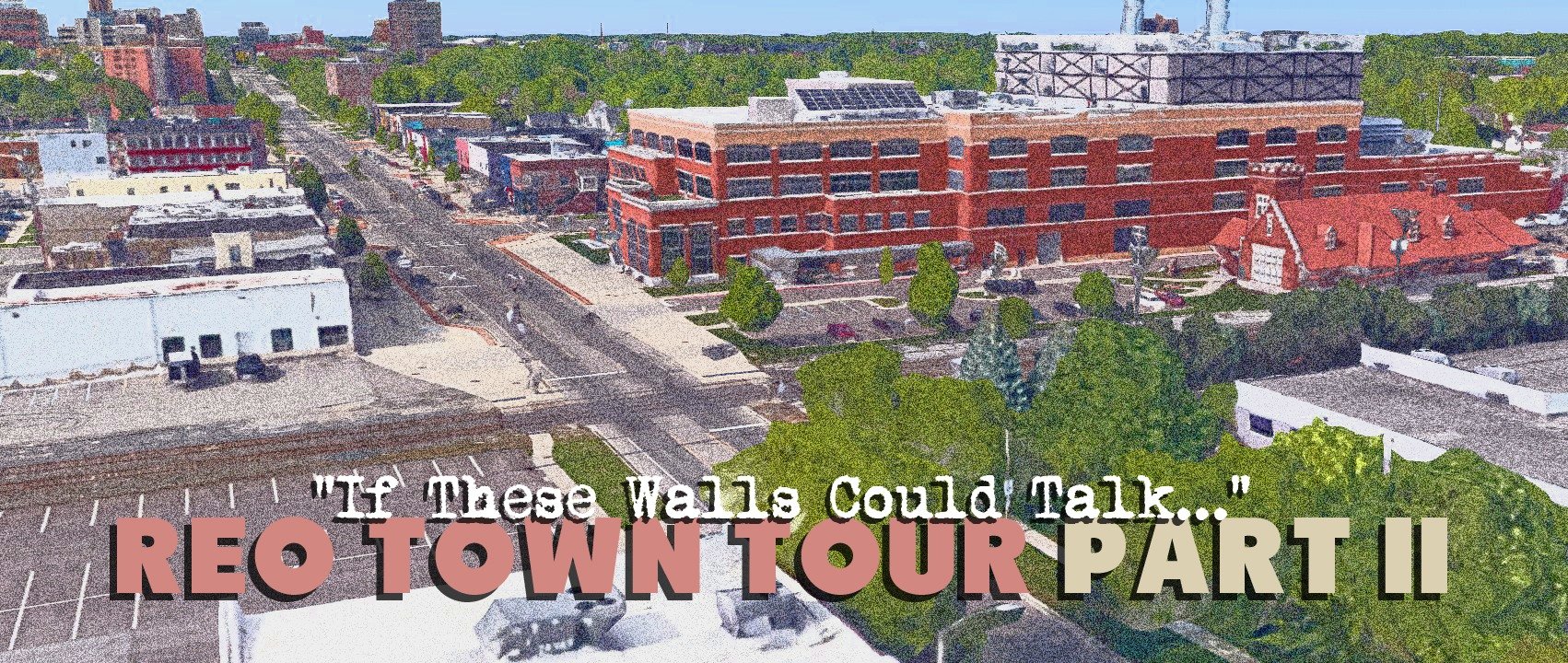
REO Town Walking Tour: Part II
On Saturday, September 30, The Historical Society of Greater Lansing will host “If These Walls Could Talk,” the season’s last walking tour, a gentle walk through the south portion of REO Town, beginning at the former Grand Trunk Railway Railroad Depot at 1 p.m. and concluding at Ellison Brewery, 1314 S. Washington.
The walking tour will proceed north on S. Washington for a few blocks covering the buildings holding Blue Owl Coffee (once a topless shoeshine parlor) and Saddleback Barbeque once holding a fruit stand, the site of a murder in 1925.
The tour will then cross the street and go South to Ellison Brewery with discussions about the architecture and the businesses which occupy and occupied the area over time.
The tour is led by Harrison Leffel-Jones and discussions will include the history of the Depot, the details of the often-violent Fruit Wars of the early 1920s and the link to REO Motors and the activities of the REO Club House. Along the way there will be discussions about the original home of the UAW/CIO, the various meat markets, grocery stores and the Shaey Hotel.
Author of the book Michael Rodriguez, an MSU Librarian and Board member of the REO Transportation Museum, will discuss the history of REO at the Ellison Brewery.
Bill Castanier, president of the Historical Society, said the tour will cover some of the little-known aspects of this vibrant commercial district which once had a “rough and tumble” history and was so seminal to the history of Lansing.
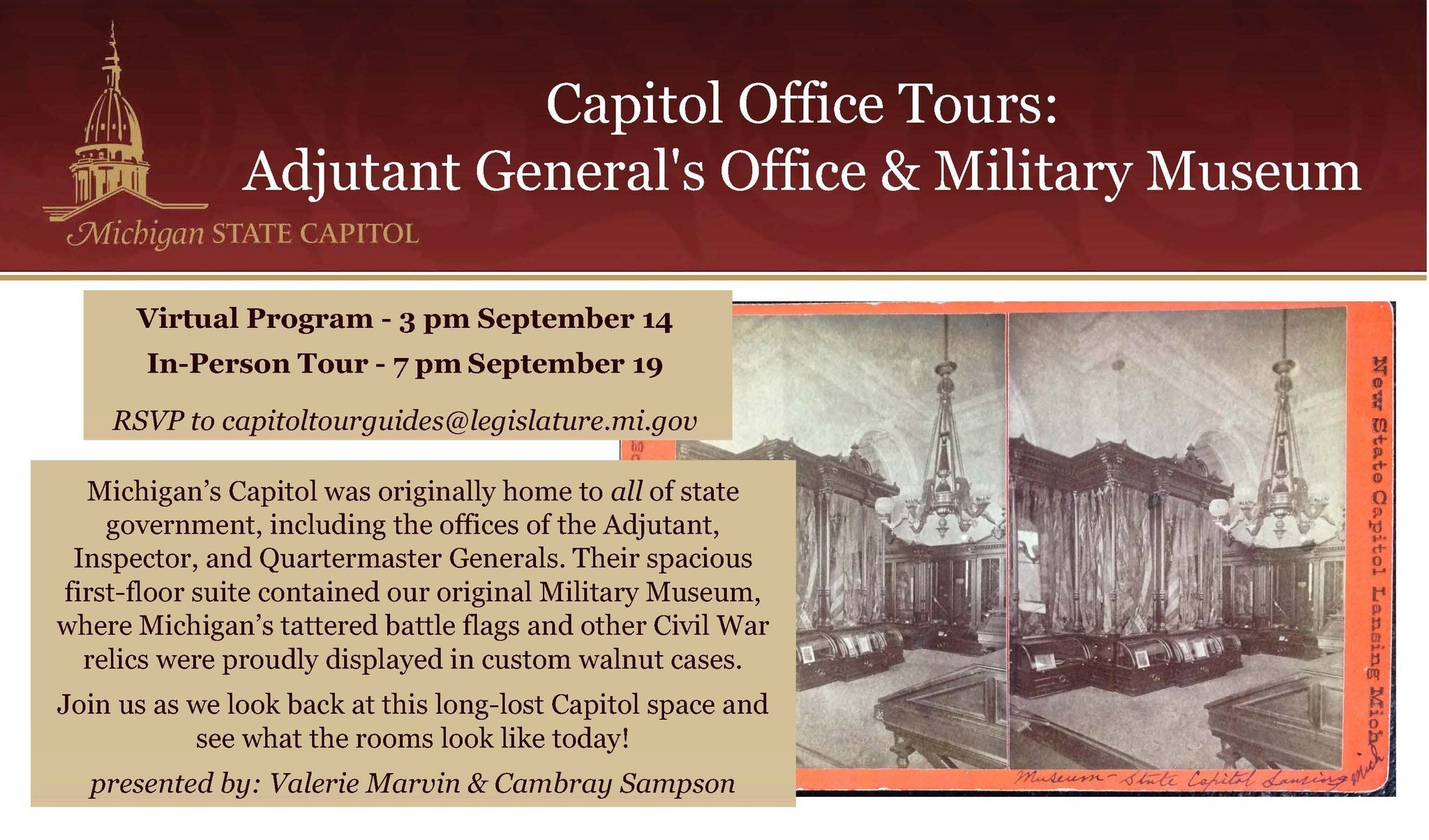
Capitol Office Tours: Adjutant General's Office and Military Museum
The Historical Society of Greater Lansing is pleased to extended another invitation from our friends at the Michigan State Capitol to participate in their monthly program series titled Rise and Progress. The September installment includes an on-site office tour in the State Capitol and a history of the department originally housed there. Capitol Historian and Curator Valerie Marvin and Capitol Tour and Education Assistant Director Cambray Sampson will present “Capitol Office Tours: Adjutant General’s Office & Military Museum” on Tuesday, September 19, 2023, at 7:00 p.m. The program begins in Heritage Hall. Please RSVP to capitoltourguides@legislature.mi.gov.
Michigan’s Capitol was originally home to all of state government, including the offices of the Adjutant, Inspector, and Quartermaster Generals. Their spacious first-floor suite contained our original Military Museum, where Michigan’s tattered battle flags and other Civil War relics were proudly displayed in custom walnut cases. Join us as we look back on this long-lost Capitol space and see what the rooms look like today!
Got Milk? A History of Local Dairies
A program and tour of a local private collection of Greater Lansing dairy memorabilia and history. A program will be given at 11:00 a.m., with plenty of time for viewing the collection, mingling, and enjoying refreshments. The event will be held on-site at a farm in Delta Township. Because it is on private property and the collection is privately held, the address will not be publicly shared. Please register to attend at this link: COMING SOON, an you will receive details on the location.
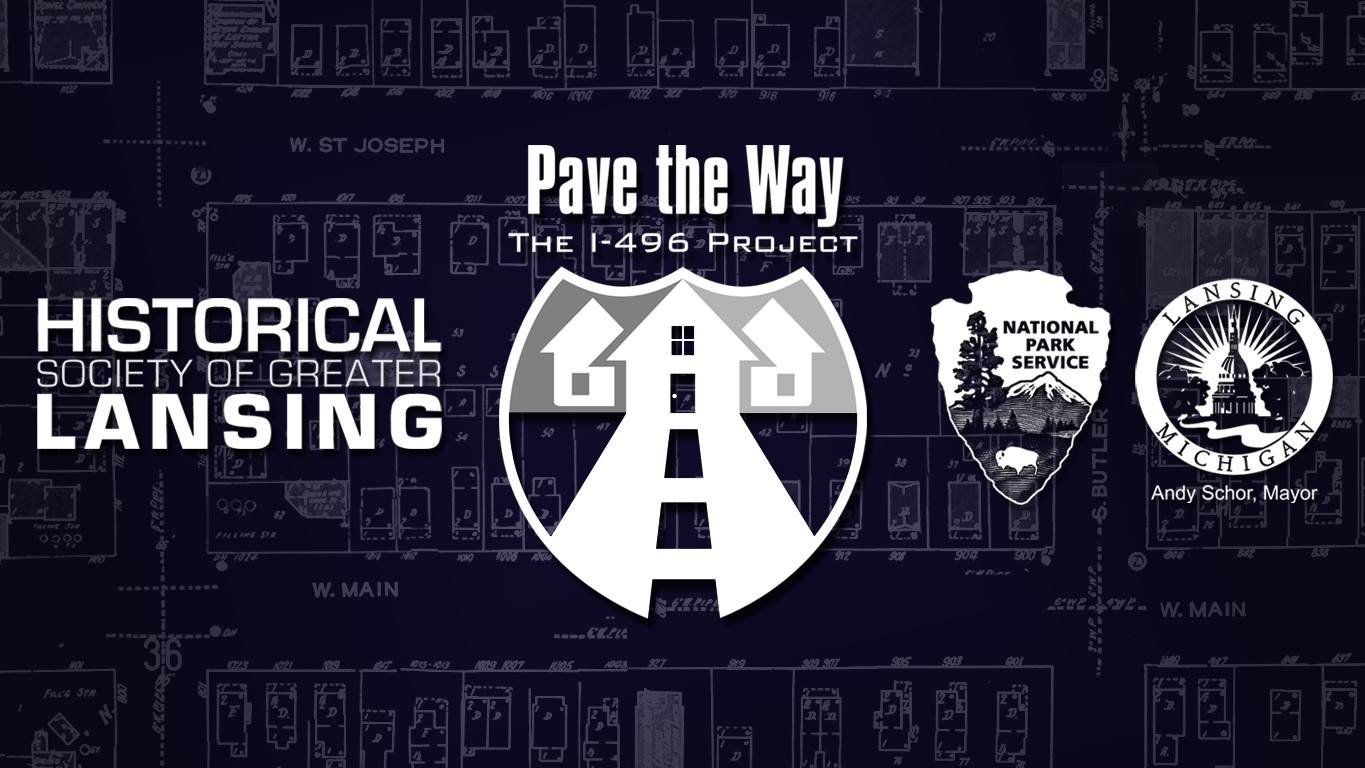
“They Took The Dirt” Screening, I-496 Pave the Way Documentary
The Historical Society of Greater Lansing is pleased to again screen the new documentary "They Took The Dirt" on Sunday, August 20th, at 3:30 p.m., at Union Missionary Baptist Church in Lansing, 500 South Martin Luther King Jr. Blvd. Capacity here is large and is not anticipated to cut off, but attendees are requested to RSVP using this form: https://forms.gle/ueXVrntE1jWCwi6t5.
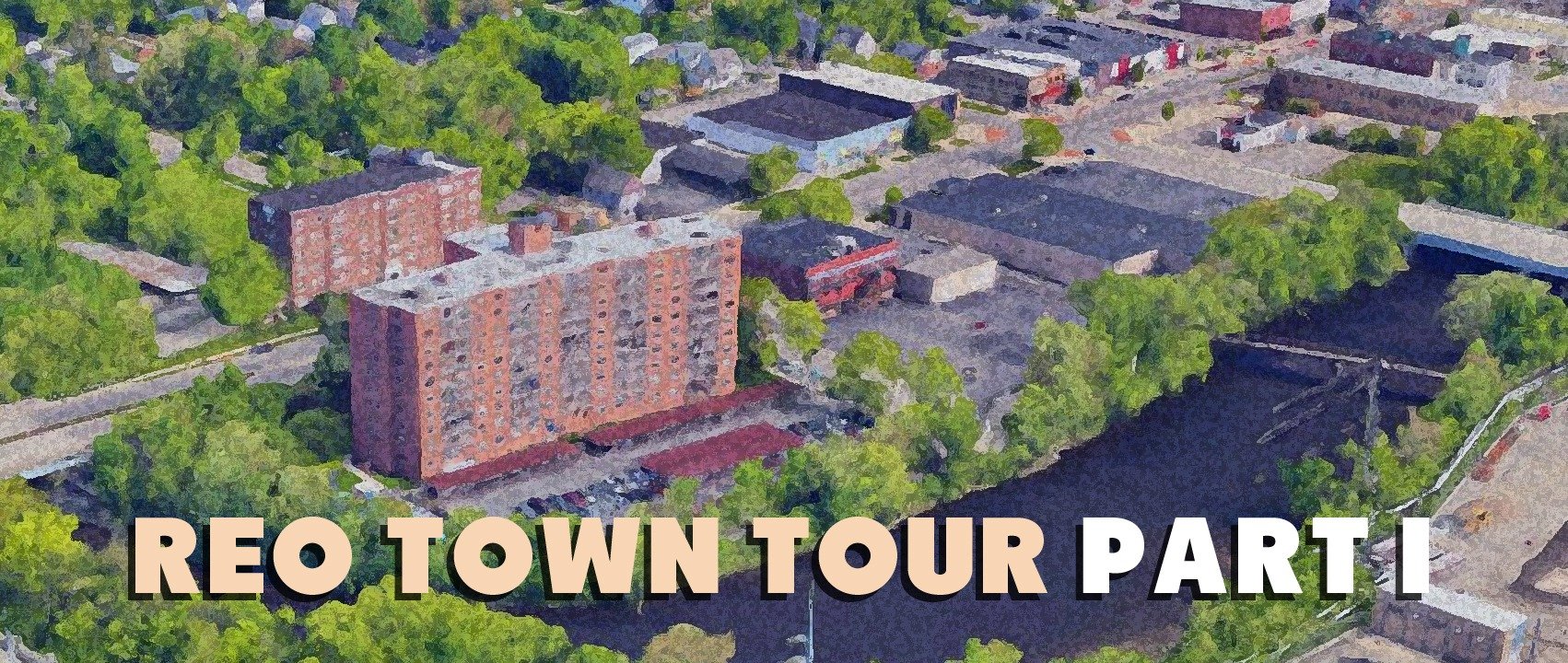
REO Town Walking Tour: Part I
The Historical Society of Greater Lansing is hosting part one of a two-part walking tour of REO Town, 10 a.m., Saturday, August 12. The tour commences at Cooley Gardens on Malcolm X Blvd. near the corner Malcolm X and Washington Blvd. Learn more about the early history of REO Town when it was still called “Uptown” and will visit several sites including the Cooley-Haze home once the home of Gov. G. Mennen Williams, two apartment buildings: Washington Apartments and Fountain Place; the Krentel Bldg; the old Standard Oil gas station and REO Town Market, a former automotive dealership.
In addition, tour attendees are encouraged after the tour to stop at Sleepwalkers for a beer to learn more about a national gambling scandal that shook Lansing in 1970 involving a major Lansing businessman and Dizzy Dean, a former pitcher for the St. Louis Cardinals and the Chicago Cubs along with being a popular broadcast announcer.
The second part of the tour will be September 28 and will complete the southern portion of Washington Blvd.
The tour guide is Harrison Leffel-Jones who serves as the Development Director for the Lansing Regional SmartZone. In his role, he focuses on delivering and coordinating services to help businesses grow within the Greater Lansing Region in coordination with LEAP, the City of East Lansing, the City of Lansing, and the MSU Research Foundation. Harrison is a native of Brighton, Michigan and an MSU Grad with a degree in Arabic Language and Comparative Cultures – he has spent most of his career working in economic development both locally and internationally. He is a massive urban planning nerd that is always studying what makes cities and public spaces work better for the people that live in them. Harrison moved back to Lansing a little over a year ago after being in Chicago and London and is excited for this next chapter in Lansing.

Dining & Dealmaking: A Tour of Lansing Restaurants
The HSGL is pleased to extend the invitation from our friends at the Michigan State Capitol to attend their August Rise and Progress program series. This month’s offering is “Dining and Dealmaking: A Tour of Lansing Restaurants,” which will offer a walking tour of downtown Lansing restaurants and bars - many no longer open or standing - which were frequented by Legislators and Governors. The tour will take place on Tuesday, August 8th, at 7:00 p.m., beginning at the corner of Townsend and Washtenaw Streets south of the Capitol. No RSVP required.
A virtual version of the tour will be given on Thursday, August 10th, at 3:00 p.m. RSVP to capitoltourguides@legislature.mi.gov.

Kewpee's Centennial Celebration & Book Talk and Signing
The Historical Society of Greater Lansing and Weston’s Kewpee Sandwich Shoppe in downtown Lansing are hosting Gary Flinn, author of “Kewpee Hamburgers: A Mity Nice History,” for a talk and book signing on Friday, August 4, 2 p.m.-4 p.m. at 118 South Washington Ave, Lansing.
Finn’s new book, “Kewpee Hamburgers: A Mity Nice History,” celebrates the chain’s centennial this year. Kewpee in Lansing is also celebrating its centennial this year. The Lansing Kewpee added its famous olive burger to the menu in 1925 and the recipe for olive sauce has remained a secret since Gladys Bowlin, who is the great grandmother of the current owner Autumn Weston, invented it. Nationally, Kewpee is the second oldest operating restaurant chain.


The Capitol in the Community: A Tour of Mt. Hope Cemetery
The Historical Society of Greater Lansing is happy to extend the invitation from our friends at the Michigan State Capitol to attend the July installment of their Rise and Progress programming series. This month they will offer a guided tour of historic Mt. Hope Cemetery on Tuesday, July 25th, at 7:00 p.m. No RSVP required.
A virtual version of the tour will be offered on Thursday July 13th, at 3:00 p.m. RSVP required to capitoltourguides@legislature.mi.gov.

Beal Botanical Garden 150th Anniversary Tour
We are pleased to offer a guided tour of the historic Beal Botanical Garden at Michigan State University to celebrate its 150th anniversary. Beal is the oldest continuously operated university botanical garden in the United States. The tour will be given by Bill Hodgkins, recent MSU graduate in history. The tour is free and open to the public. Meet at the Beal Garden pond/shed at 10:00 a.m. on Saturday, July 15th.

75 Years of LHS & HSGL
Historical Society of Greater Lansing Celebrates 75 Years of Lansing History
In honor of the 75th anniversary of the establishment of the Lansing Historical Society, the Historical Society of Greater Lansing will assemble seven former presidents in a panel discussion on the importance of studying and saving local history for future generations at 6:30 p.m., Tuesday, July 11, Lake Erie Room, Library of Michigan, 702 West Kalamazoo, Lansing MI.
The event is free and cake and ice cream will be served. A small display of HSGL historical pamphlets and ephemera will also be on display.
Seven past presidents will participate in a panel discussion on the evolution of the HSGL and will answer the question “why is local history important?”
Current president Bill Castanier said, “We are honored by their lifetime commitment to the study and the saving of our local history. During a time when the study of history is under attack, high school test scores in history are plummeting and the study of history is seen as nostalgia it is important to reflect on why local history matters.”
LHS and its successor HSGL, have been preserving and sharing Lansing history for 75 years (1947-2022). This year marks 75 years since the first annual meeting of the Lansing Historical Society in 1948. The LHS was short lived, operating for around five years. However, in 1955, the Historical Society of Greater Lansing picked up where they left off. The program will begin with a brief introduction on LHS and HSGL early history, then transition into a panel discussion of past presidents.
Those participating are Geneva Wiskemann (1960-1961, 1974-1976, 1978-1980), Eugene G. Wanger (1970-1971), Eric Satterlee (1984), Linda R. Peckham (1988-1999), Craig A. Whitford (2001-2005, 2007-2009), Doug Johnson (2009-2010), and Valerie R. Marvin (2010-2016). Wiskemann is the final surviving charter member of the HSGL and has been involved in local and Michigan history for more than 70 years.
Current and youngest HSGL Trustee Jacob McCormick said “The participating past presidents have a combined presidencies of more than 30 years spanning almost six decades. They will reminisce on their involvement in local history, achievements with the HSGL, memories of events, research, programming, and offer a perspective on why local history is important.”
George N. Fuller, secretary of the Michigan State Historical Society, writing in the Lansing State Journal in 1948 on the occasion of the first annual meeting of the Lansing Historical Society said “Many used to think of local history as largely a matter of sentiment or as a pleasant way for a select few to pass the time. Or it was regarded as a matter of satisfying one’s curiosity or of gaining facts which might be useful in conversation.
It is the work of the local historical society, then, to gather facts on those local persons. Institutions and events which have played an important role in our community’s development, that a later historian may relate these facts of local history to the larger story of our nation as a whole translating to us our American ideals of democracy in terms of our personal and community experience. In this way local historical work can be a tool of great importance in welding that national spirit so much needed as we face the challenge to our American way of life and try to help in the reconstruction of a disordered world.”
He went on: “All history is local somewhere.” And “American local history gains importance from the fact it illustrates in miniature the American way of life with its freedom and tolerance and individual opportunity. It pictures at close range the war on hunger, poverty, disease and ignorance.”
Pulitzer Prize-winning historian and author Jon Meacham said in 2022, “To know what has come before is to be armed against despair. If the men and women of the past, with all their flaws and limitations and ambitions and appetites, could press on through ignorance and superstition, racism and sexism, selfishness and greed, to create a freer, stronger nation, then perhaps we, too, can right wrongs and take another step toward that most enchanting and elusive of destinations: a more perfect Union.”
On a lighter note, author and lecturer Mark Twain said, “history doesn’t repeat itself but it often rhymes.”

Pave the Way Documentary Premiere
Pave the Way Documentary to premiere in Lansing
“They Even Took the Dirt” a one-hour documentary compiled from more than 75 oral histories of survivors and their children which tells the crushing story of the destruction of a thriving African American neighborhood on Lansing’s westside in the 1960s will premiere at 2:30 p.m., Sunday, July 9, at the Lansing Public Media Center, 2500 South Washington. This first premiere showing is sold out as the venue is at capacity with those registered. A second showing will follow the first at 5:30 p.m., Sunday, July 9. Please do not come to the first showing unless you have already RSVP'd. The link to RSVP to the second showing is here: https://forms.gle/QS59duoGBcyK2F429.
The event is free but since seating is limited organizers are asking attendees to register and indicate the number of tickets they would like to reserve. Reservations for the first showing are closed and all seats are full. RSVP to the second showing online here: https://forms.gle/QS59duoGBcyK2F429 or by calling 517-449-8771.
The title “They Even Took the Dirt” was derived from an oral history given by James “Jet” Davis and refers to the massive amount of dirt that was excavated to build I-496 which stretches across Lansing and was constructed from 1965 to 1970 resulting in the loss of nearly 700 homes and scores of businesses.
The oral histories were completed by a team of volunteers led by community members Kenneth Turner (videographer) and Adolph Burton (interviewer).
The oral histories have been compiled and will be available for researchers through local research institutions.
The Pave the Way Project was a joint effort of the Historical Society of Greater Lansing, the City of Lansing and funded by a $40,000 grant from the National Parks Service.
The post production editing of the documentary was completed by Craig Jones, an award winning cinemaphotographer and editor from Lansing.
Following the premiere and second showing, the documentary will continue to be shown at events and programs across the city.
Bill Castanier, president of the Historical Society of Greater Lansing, said the Pave the Way project involved hundreds of community volunteers who were committed to telling the story of the impact of the expressway construction on Lansing’s African American neighborhood.
“What makes this documentary so compelling is it is told in the first person by residents who lived through the destruction of their neighborhood and way of life,” Castanier said.
“Despite the impact of Covid, the scope of the project was without precedent and the HSGL is in the process of creating an online report featuring photographs, documents and historical material which was gathered during the project,” he said.
“I expect 50 years from now social scientists and historians will be using that material to plumb the impact of the construction of expressways across the United States,” Castanier said.
One such document is a scrapbook compiled by Richard “Dick” Letts who was the city of Lansing liaison on relocation during the I-496 construction. It can be viewed at Pave the Way – The I-496 Project | Library of Michigan Digital

MSU's "Sacred Places"
Join the HSGL and the staff of the Michigan State University Archives for an engaging tour of old campus including the area around Beaumont Tower that has been designated as a “sacred place,” where no further construction would be made on MSU Campus. Learn about the history of some of the oldest buildings on Campus. This tour is based on the new book “Tales from the Archives Volume Two: Sacred Spaces.” The event is free and will be held at 10:00 a.m. on Saturday, June 10, 2023.

History of Real Photo Postcards
Rescheduled twice from March 4th and May 13th. The new and final date is May 30, 2023.
In conjunction with the “By the Yard” panoramic photo exhibit sponsored by the Library of Michigan and the Historical Society of Greater Lansing, a lecture series is being presented this winter and spring. Next, we are hosting a lecture by noted photographer and vintage postcard collector and dealer Doug Aikenhead of Ann Arbor at 1:00 p.m., Saturday, May 13 in the Lake Erie Room at the Library of Michigan, 702 West Kalamazoo St., Lansing. The lecture and exhibit are free and open to the public. Parking is free in the Library parking lot. As a backdrop to the lecture, the exhibit of yard long panoramic photographs from across Michigan will continue to be on display.
Aikenhead will showcase some of his rare “Real Photo Postcards” and discuss the unique phenomena of citizen photography portrayed in these specialized postcards which are actual photographs taken by both amateur and professional photographers. What makes real photo postcards unique are they are photographs that are printed directly on photo paper. This distinguishes this unique postcard from mass produced postcards.
Real photo postcards boomed when Eastman Kodak began marketing postcard sized photographic paper in 1903. In 1903, Kodak also introduced the 3A-Kodak Autographic Camera- which allowed the photographer to use a metal stylus to write descriptions and locations directly on the negative which then appear as white on a final print.
The final print was actually a one-to-one contact print (3 ¼ by 5 ½ inch) with the photo on one side and the mailing information and area for a message preprinted on the reverse side.
Today, these photographs tell the early history of the United States and how these uncommon photographs contributed to the mythos of the country. Typical real photo postcards were taken of small town street scenes, parades and patriotic events and family gatherings.
On the reverse side of the real photo postcard senders would often indicate that they were there and took the photograph. Local photographic shops also would produce quantities of cards for the photographer.
Aikenhead said, “These photographs tell us a lot about who we are and what was important to people more than 100 years ago.”
“These real photo postcards provide a jumping off point for collectors and historians who research more details about who or what is shown in the photograph,” he said.
Aikenhead not only collects but also has been selling real photo postcards since 1977.
A large percentage of real photo postcards were never sent and mint postcards of special circumstances like early flight are rare and expensive to collect. Postcards of early street scenes especially of small towns are also highly collectible.
Real photo postcards were used to record tragedies such as fires, train wrecks and floods and often are the only photographic record of the event. Professional photographers were often on the scene first and within a day could offer the real photo record for sale.
A classic example of that experience is the real photo postcards taken of the Bath School Disaster were sold as a set at local stores within two days of the tragedy; and real photo postcards could be purchased for six for 50 cents. Professional photographers also were quick to take photos of sports teams and school classes.
Today, real photo postcards are often used as illustrations in books mostly because they are accessible and copyright free.
Aikenhead will provide a framework for collectors about how to identify a real photo postcard and how to rule out cards that look similar, but were mass produced. He also will show how to identify counterfeit reprints.
Attendees are encouraged to bring their own real photo postcards for a post lecture show and tell.
About the presenter:
Doug Aikenhead is a photographer and vintage postcard collector and dealer. He began collecting postcards during a year-long photographic road trip in 1977. Doug has been a postcard dealer since 1993 and enjoys discussing postcards with fellow collectors and dealers at a dozen postcard shows every year. He also writes occasional articles about vintage postcards. Doug earned his Master of Fine Arts degree at Cranbrook Academy of Art, taught photography at Detroit’s College for Creative Studies and other institutions, and co-edited Detroit Images: Photographs of the Renaissance (Wayne State University Press, 1989). He is the current president of the Michigan Photographic Historical Society.

Michigan School for the Blind & Michigan Female College Walking Tour
Join the Historical Society of Greater Lansing for our first outdoor walking tour of the 2023 season. We have quite a schedule lined up, starting with a tour of the grounds of the former Michigan School for the Blind, to be held at 7 p.m., Thursday, May 18. The event is free and the tour will be meeting at former Superintendent’s home which faces Walnut Street.
Michigan State Capitol Historian and former HSGL president Valerie Marvin will be the tour guide and will inform attendees of things they perhaps do not know about the beautiful park-like atmosphere of the School for the Blind campus.
Most know about Stevie Wonder attending school at the MSB, but there is much more to know about the earlier history of the site. The tour will discuss more about Michigan Female College and its founders. Also, learn more about the educational approach of the boarding school and the School for the Blind’s role in the city. In recent years, the School’s campus has helped transform the neighborhood with some of the original 100-year-old structures being turned into rental housing for seniors.
The next walking tour is set for 10 a.m., Saturday, June 10, on the campus of Michigan State University. That tour will begin at Beaumont Tour and will include a walk through the "sacred" places of old north campus.
Other tours this summer include two walking tours of REO Town, a tour of the neighborhood adjacent to the downtown campus of Lansing Community College, and a celebration of Kewpees Centennial. Visit the HSGL website at www.lansinghistory.org and join us on Facebook for details.

Reel News Was Sometimes Fake: REO Motors News Reels
REO Motor Car Company was known as an innovator in the production of cars, trucks and buses but few people know that REO also produced newsreels in the 1920s for showing in Michigan cinema houses.
Newsreels at one time were one of the major mediums that people worldwide learned about the news of the day. First started in 1911 in Europe newsreels soon crossed the ocean and began appearing in movie theatres at the beginning of a movie or between two movies.
Newsreels were immensely popular and for many it was the first time they would see motion pictures showing war scenes, architectural wonders and the many quirks of varying cultures.
Little did viewers know that fake news would creep into the newsreels and soon they would be used for propaganda by despots and dictators. This would include newsreel segments of naval battles shot in swimming pools and land battle fought on golf courses.
Join the Historical Society of Greater Lansing for an evening covering the history of newsreels and the history of REO Motor Car Company’s entry into the newsreel business. REO’s newsreels were known as REOGrams and an important collection of them has been preserved by Michigan State University Archives and Special Collections.
This will be the first time these special newsreels have been shown publicly and they cover everything from beauty contests to MAC football trips. They are a sight to behold and interestingly REOGrams were produced without sound so the video carried the storyline with few captions. Join us as we step back in time before 24-hour cable news and artificial intelligence generated news memes.
The event is at 6:30 p.m., Thursday, May 11, at the Oldsmobile Transportation Museum, 240 Museum Dr., Lansing. The event is free and open to the public. Come early and roam among the vintage car exhibits.

"In The Day": Photos by Fred Richardson
The Historical Society of Greater Lansing is excited to welcome Adolph Burton, lifelong Lansing resident and community historian, to discuss the history of Black Lansing photographer Fred Richardson, who documented everyday life in the segregated society of mid-twentieth century Lansing.

Photography of Michigan's Upper Peninsula
Photographer Takes You on a Historic Photographic Tour of the Upper Peninsula
The Historical Society of Greater Lansing is hosting Jack Deo, a photographic historian from Marquette, Michigan for a lecture on the historic photographers of the Upper Peninsula including the outlaw “Black Bart,” who killed a man while robbing a stagecoach, 1:00 p.m., Saturday, April 15 at the Library of Michigan, Lake Erie Room, 702 W. Kalamazoo St., Lansing.
During his long career in Marquette, Deo has collected nearly 1 million images taken in the Upper Peninsula dating back to the early timber and mining industry days. The photographs represent every important industrial, cultural and social location and event in the Upper Peninsula ranging from mining and lumbering to dancing bears and Native Americans.
He recently received the Upper Peninsula Folklife Award presented by the Beaumer U.P. Heritage Center at Northern Michigan University. He also served as a curator for a current exhibit, “Exposing Photography: Anything but a Small Business,” at the Marquette Historical Society.
Since moving to Marquette in the early 1970s to attend Northern Michigan University, Deo has collected and curated some of the most important photographic collections emanating from the Upper Peninsula including the works of B.F. Child; famed National Geographic wildlife photographer George Shiras; Harold DuCharme; Tappan Gregory; William Harris and Edgar and Merta Lemon.
He will also show photographs from John M. Longyear, a wealthy industrialist, Congressman and amateur photographer, who was a lawyer, originally from Lansing, Michigan.
Deo said many of the photographs he will focus on were often sold as souvenirs or as stereographs and some were important enough to appear in Harpers Weekly.
Deo will also discuss and show the photographic work of the famous and infamous U.P. photographer “Black Bart” who learned his photographic trade while serving time at Marquette Prison after killing a man in Gogebic County during the last stage coach robbery east of the Mississippi in 1889.
“Black Bart” whose real name was Reimund Holzhey would use his photographic skills to photograph tourists in the elegant gardens surrounding the prison and while in prison would learn the fine art of hand coloring photographs.
Deo recently acquired the panoramic camera used by “Black Bart” to photograph scenes across the U.P after his release. Deo also will bring the first trail cam in the world perfected by George Shiras who took the first outdoor flash photograph of a deer in nature.
Deo said he was inspired to enter the field of photography by the tin typist at Greenfield Village who was also his next-door neighbor in Dearborn
“Greenfield Village was an important influence in my life,” he said.

The David V. Tinder Collection of Michigan Photography
The Historical Society of Greater Lansing is hosting an educational program on “Tinder,” 7 p.m., Thursday, March 16 at the Library of Michigan, Lake Erie Room, 702 West Kalamazoo St. The event is free and parking is adjacent to the Library.
To be clear the program is not about the on-line dating site, but it is about the David V. Tinder Collection of Michigan Photography of more than 100,000 photographs held at the Clements Library at The University of Michigan. Clayton Lewis, curator of the collection, will present a program on Tinder - the photo collection - not the dating site and show how it can be used to identify more details about a coveted family photograph and the photographer who took it.
Tinder was born in Lima, Ohio, in 1926, and moved to Flint, Michigan, as a child. He graduated from the University of Michigan, in 1949 with a degree in Physics. He spent most of his career as a project engineer and engineering manager working for Dura Corporation, McCord Corporation, and United Technologies. He held 16 United States patents plus a number in foreign countries.
Tinder began collecting antiques in the late 1950s, starting with leaded glass lamps, art glass and ceramics, Art Nouveau pewter, and Japanese bronzes. Inspired by William C. Darrah’s 1964 book A History of Stereographs in America and Their Collection, he amassed a large group of international photographic stereo views. By the early 1970s he began trading his international collection for Michigan stereo views and other early photographic formats related to Michigan. Eventually this would include examples of virtually every popular photographic format used by both professional and amateur photographers in the first century of photography.
Tinder became interested in the lives and careers of the photographers represented in his collection and began creating The Directory of Early Michigan Photographers. The combination of his collection and research has led to his recognition as the leading authority on the subject of early Michigan photography.
The Tinder Collection consists of more than 100,000 images in a variety of formats including daguerreotypes, ambrotypes, tintypes, cartes de visite, cabinet photographs, real photo postcards, stereographs, and mounted and unmounted paper prints.
The collection is primarily made up of vernacular photographs of everyday life in Michigan taken by both professional and amateur photographers from the 1840s into the mid-twentieth century. In addition to supporting local history research, the collection has resources for the study of specific events and subjects. Included are images related to lumbering; mining; suburbanization; the industrialization of cities; travel and transportation; the impact of the automobile; the rise of middle-class leisure society; fashion and dress; ethnicity and race; the role of fraternal organizations in society; and the participation of photographers in business, domestic, and social life. The collection is only partially open for research.
This reference work contains biographical information about virtually every known commercial and significant amateur photographer in the state of Michigan from the first known appearances in the 1840s into the early twentieth century.
Because the collection is so large much of it is still being catalogued; however the list of photographers, their hometown, their years of operation and detailed biographies are available on line at https://clements.umich.edu/files/tinder_directory.pdf
Lewis will walk people through how they can use the on-line catalog to help identify the history of family photographs and narrow down where and when they were taken.
The online resource is the most valuable research resource on Michigan Photographers ever compiled.
Read more about the collection here: David V. Tinder Collection of Michigan Photography - UM Clements Library (umich.edu).
The Tinder program is part of a lecture series on Michigan Photography being hosted by the Historical Society and the Library of Michigan in conjunction with the current exhibition on Michigan panoramic photography featuring 53 dramatic photographs from across the state.

Lansing and the Civil War
The Historical Society of Greater Lansing is excited to welcome local historian Matt VanAcker for a program and book signing for his new book Lansing and the Civil War, published by the History Press this February. The talk and signing will be held on Thursday, March 9, 2023, at 7:00 p.m. in the Lake Erie Room on the second floor of the Library of Michigan at 702 West Kalamazoo Street in Lansing. The book is the first published exclusively on the contribution of Lansing residents in the Civil War.
Matt VanAcker is the director of the Michigan State Capitol Tour, Education, and Information Service, and is co-chair of the Save the Flags program, dedicated to the preservation, conservation, research, and display of the Michigan Battle Flag Collection.

A Capitol & Its Cameras
We are pleased to continue extending the invitation from our friends at the Michigan State Capitol to attend their monthly Rise and Progress program series. The February 2023 program is entitled A Capitol & Its Cameras. The program will be held in person on Tuesday, February 21, 2023, at 7:00 p.m. in the Lake Erie Room at the Library of Michigan. No RSVP needed for the in person program. A virtual version will be offered on Thursday, February 16, 2023, at 3:00 p.m. The virtual program requires an RSVP, please send you RSVP to capitoltourguides@legislature.mi.gov. The program will be presented by Capitol Photo Archivist Jacob McCormick.
Description from the Michigan State Capitol:
The Michigan Capitol has been photographed since its inception, from construction through the 144 years since Dedication Day. Join us for an illustrated walk through the history of photographic formats, from early plate photos into the 20th century’s modern gelatin prints, including rare views of early Lansing. Enjoy a look at our photo collection, including views of the restoration, events like rallies and inaugurations, press photographs, visitors’ snapshots, panoramas, portraits, and more! Plus, learn how your photos can become a piece of the Capitol’s photographic record.

By The Yard: Michigan in Panoramic Photography
The Historical Society is proud to present “By The Yard: Michigan in Panoramic Photography,” the exhibit and lecture. Join us on Saturday, February 11, 2023, at 1:00 p.m. in the Lake Erie Room at the Library of Michigan, 702 W. Kalamazoo St. for the opening of the new exhibit on panoramic photography of our great state! The exhibit is more than 3 years in the making and came from the mind of the late collector, community historian, and friend of the HSGL, Dan Barber. The opening event will include a lecture and tour of the exhibit.
The “By The Yard” lecture will begin at 1:00 p.m. and will be presented by exhibit co-curator Jacob McCormick, a trustee of the Historical Society of Greater Lansing. McCormick is a historian and collector of 19th century Lansing photography. He holds a Master of Library and Information Science and is the photo archivist for the Michigan State Capitol.
“By the Yard” - the lecture - will cover the history of panoramas from the earliest days of photography to modern cell phone panoramas. The presentation will be illustrated with panoramic photos from the exhibition and those that didn’t make the cut due to the vast number that surfaced in preparation for the exhibit. The lecture will be followed by a tour of the exhibit.
“By the Yard” - the exhibit - features more than 50 panoramic photographs from across the state of Michigan. They include groups of people and landscapes, Camp Custer to Marquette, and the University of Michigan to Michigan State University. There is truly something for everyone to enjoy!
The exhibit is sponsored by the Historical Society of Greater Lansing and the Library of Michigan. It was co-curated by Bill Castanier, Karla Barber, and Jacob McCormick.
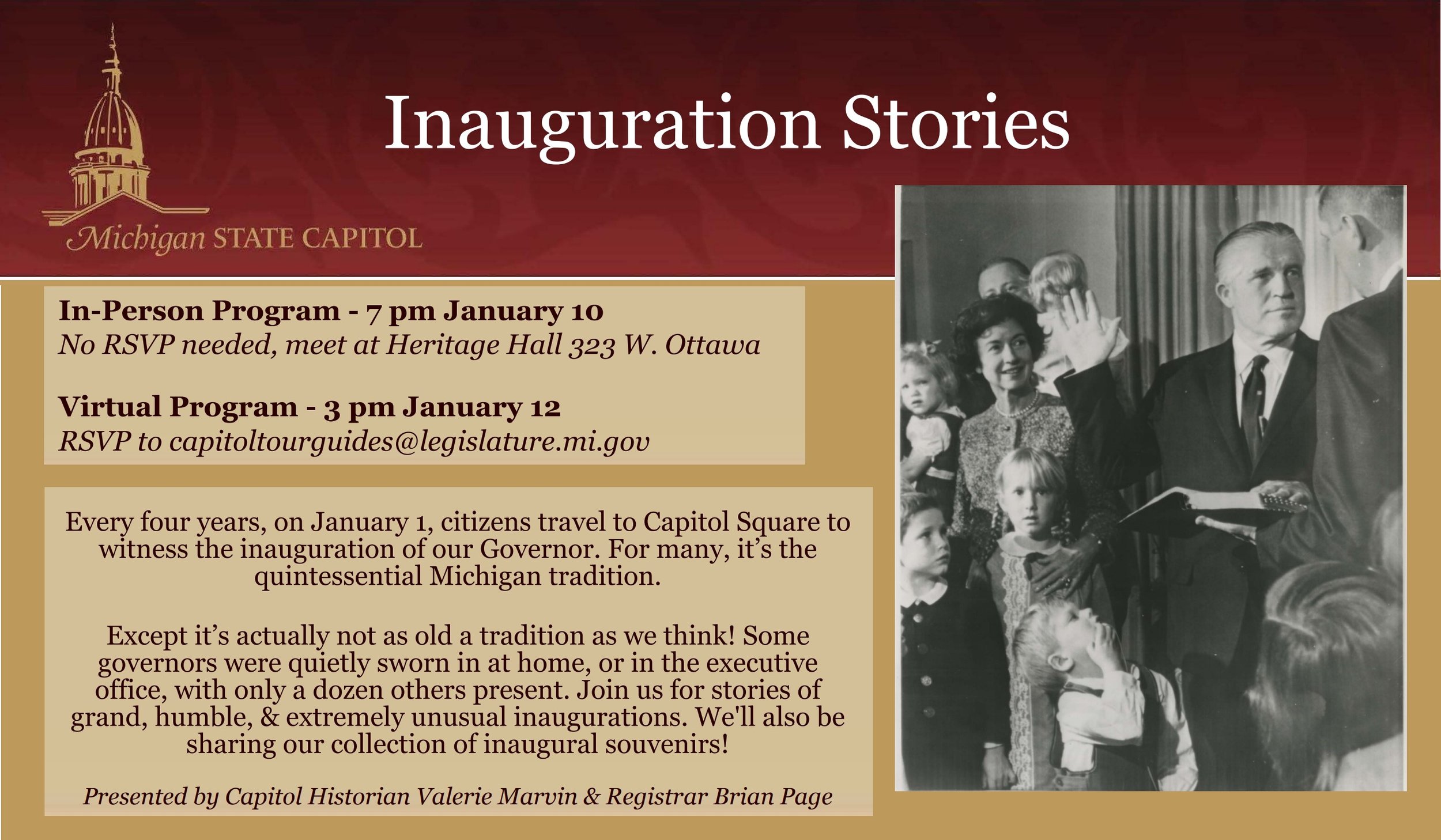
Inaugural Stories
We are pleased to continue extending the invitation from our friends at the Michigan State Capitol to attend their monthly Rise and Progress program series. The January 2023 program is titled Inauguration Stories. The program will be held in person on Tuesday, January 10, 2023, at 7:00 p.m. at Heritage Hall at the Capitol. No RSVP needed for the in person program. A second virtual version will be offered on Thursday, January 12, 2023, at 3:00 p.m. The virtual program requires an RSVP, please send you RSVP to capitoltourguides@legislature.mi.gov. The program will be presented by Capitol Historian and Curator Valerie Marvin and Capitol Registrar Brian Page.
Description from the Michigan State Capitol:
Every four years, on January 1, citizens travel to Capitol Square to witness the inauguration of our Governor. For many, it’s the quintessential Michigan tradition.
Except it’s actually not as old a tradition as we think! Some governors were quietly sworn in at home, or in the executive office, with only a dozen others present. Join us for stories of grand, humble, & extremely unusual inaugurations. We’ll also be sharing our collection of inaugural souvenirs!

Michigan State Capitol Heritage Hall Dedication
The Historical Society of Greater Lansing is pleased to extend the invitation from our friends at the Michigan State Capitol for the dedication of the new Heritage Hall welcome center. The dedication will include a brief ceremony and an opportunity to visit and explore Heritage Hall if you have not yet had the opportunity.

The Transformative Harriet Tenney
The HSGL is pleased to extend the invitation of our friends at the Michigan State Capitol for their last Rise & Progress program of 2022. For November, Capitol Historian and Curator Valerie Marvin will take a trip to the Library of Michigan for a tour of the special exhibit, The Transformative Harriet Tenney. Marvin curated the exhibit in partnership with the library. The in-person program and tour will be held on Tuesday, November 15th, at 7 pm at the Library of Michigan, 702 W. Kalamazoo Street. No RSVP needed.
In 1869, Harriet Tenney became the first woman to lead a state department when she was appointed State Librarian. Smart, determined, and savvy, she made it easier for women to work in government, libraries, and museums. An active community member in Lansing, she was president of the Ladies Aid Society, the Lansing Women’s club, and helped open a local library. Harriet valued lifelong education and used her position to benefit other women. Learn more about her remarkable life in this exhibit on view now at the Library of Michigan.
A virtual program will be offered on Thursday, November 3rd, at 3 pm via Zoom. RSVP to capitoltourguides@legislature.mi.gov.





